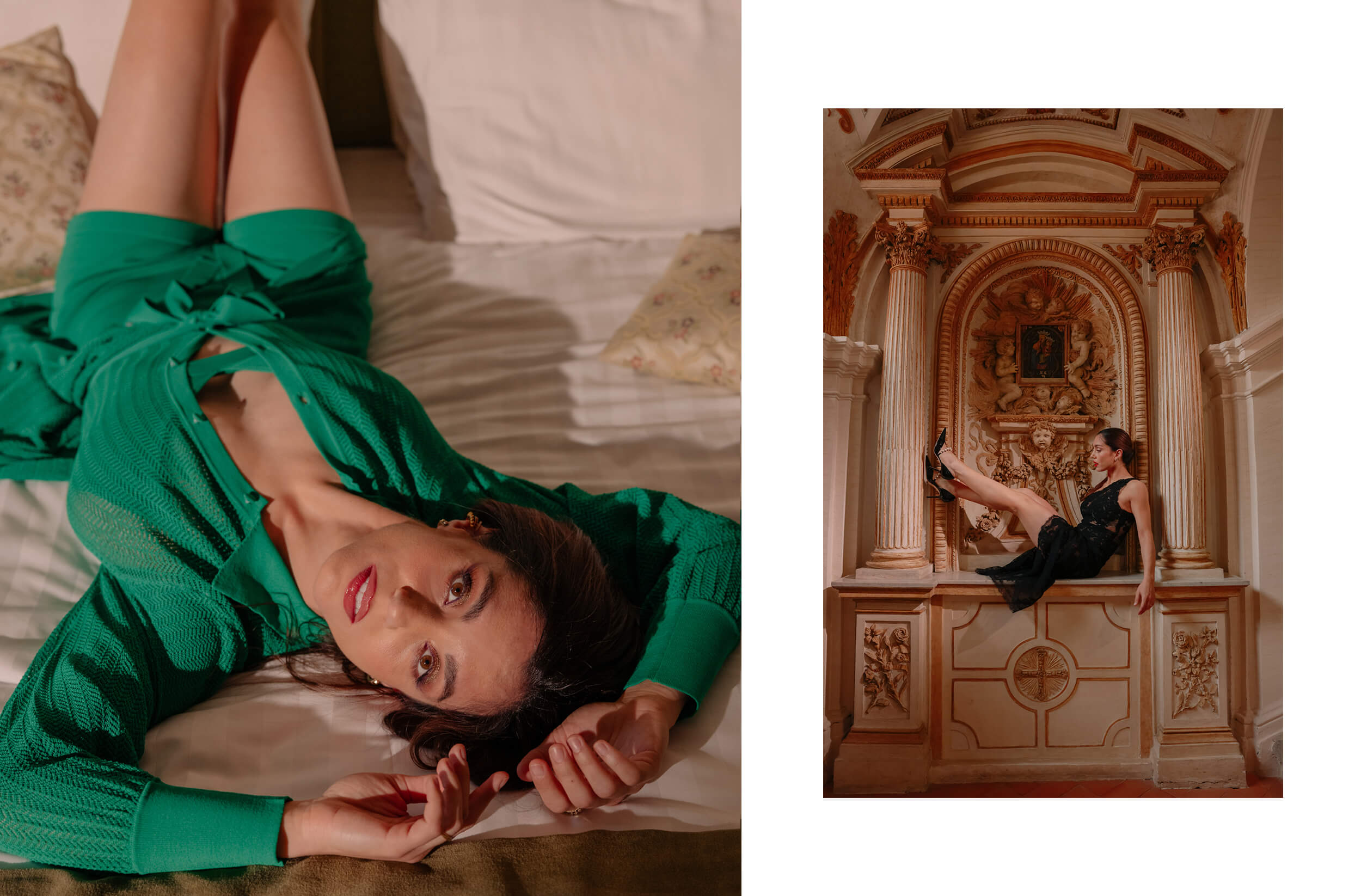Cristiana Dell’Anna dreams of a world with no boundaries, a storyline where she can feel represented, a reality that she’s in charge to write, with a soundtrack marking its most significant moments.
Dreamer and realist at the same time, Cristiana doesn’t give up on an adventure when she sees one promising her growth and indelible memories. In an inspiring chat, she told us about her latest adventures: “Mixed by Erry”, the new movie by Sydney Sibilla about illegal music downloads, set in 1980s Naples, and “Piove” by Paolo Strippoli, a “ghost story” on the fumes of Roman violence.
With Cristiana, we discussed music and its ability to “involve and reconcile everyone”, going through her own music career, which includes one single (“Carpe D.M.”) and a collaboration with Ntò (“Pe t’avé”).
Pointing to the ground, where to keep feet rooted, but also to the horizon, to revolutionize when you feel in a cage.
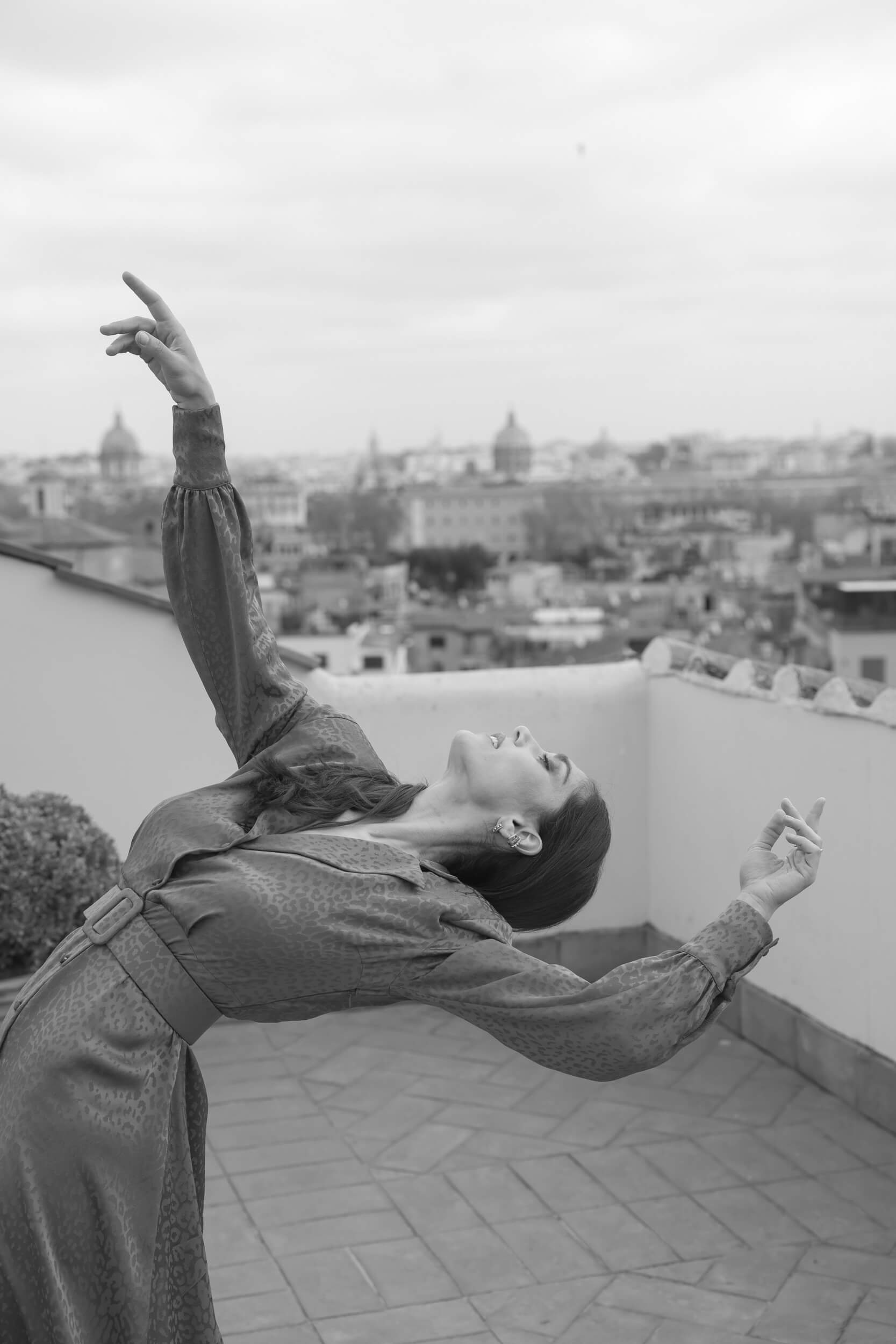
What’s your first cinema memory?
It maybe dates back to 1998, when “Titanic” came out. My family wasn’t used to taking us to the movies. We must have gone together 5 or 6 times in my whole life. That one was my first time. So, “Titanic” for me played a vital role in clearing my mind about what I wanted to be in my life, not only because it happened in a delicate phase of my growth when I was just a teenager, but also because it was the first time that I step foot in a movie theater.
It changed me forever.
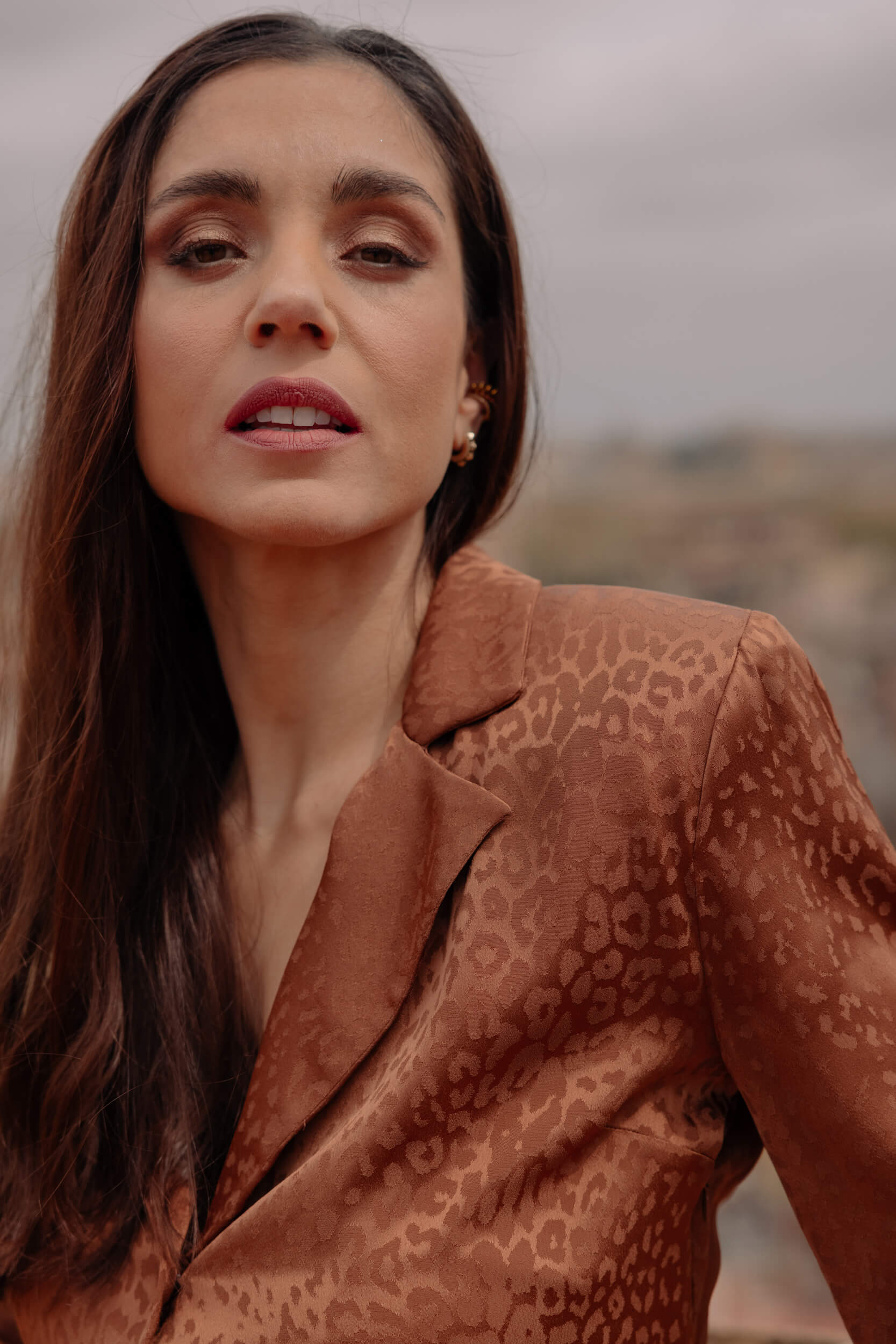
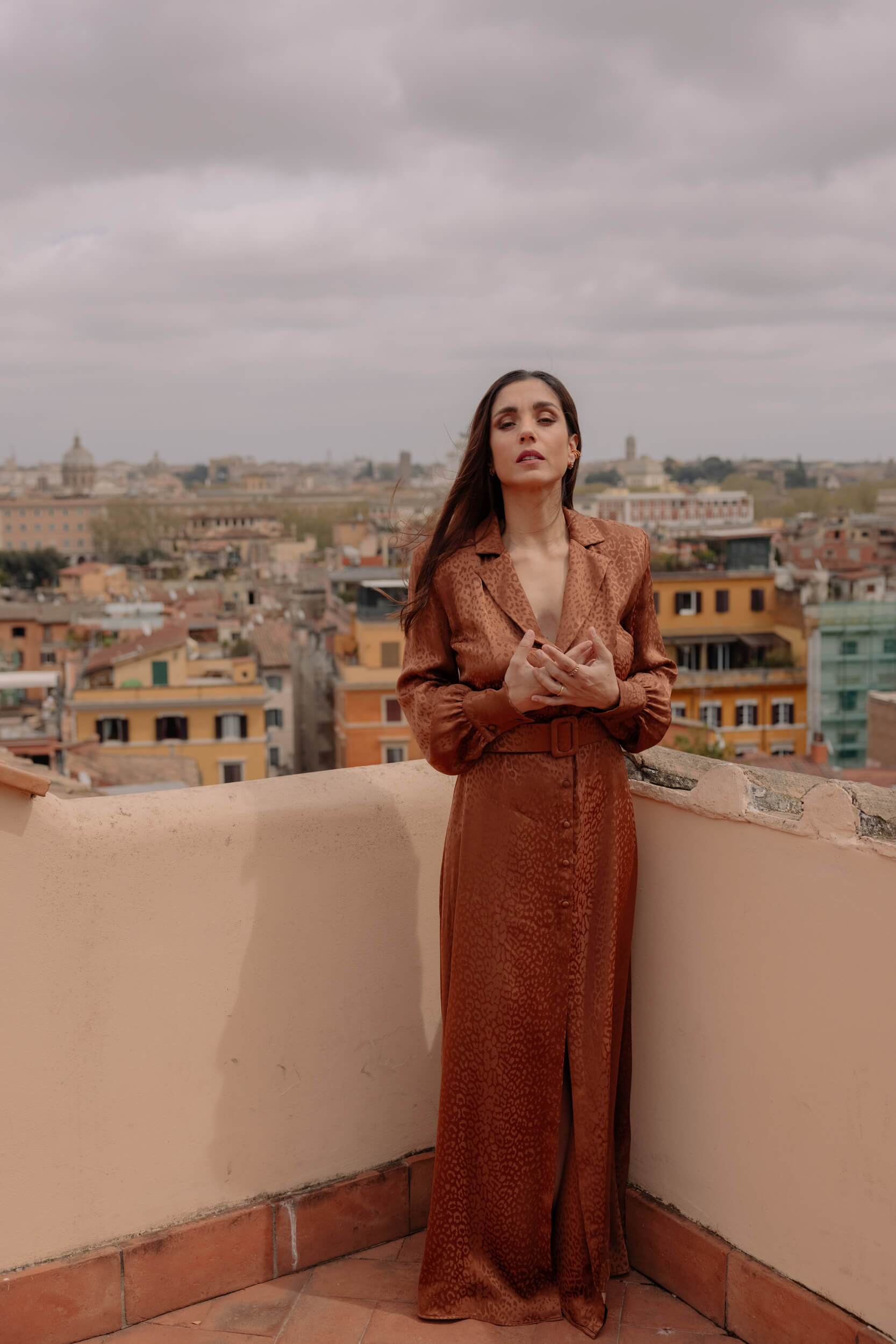
One of your latest cinematographic projects is the new movie by Sydney Sibilla, “Mixed by Erry”. A story inspired by real-life facts, about the beginning of illegal music downloads in Italy set in 1980s Naples. What was your experience of this set like? What was the first question you asked yourself when you read the script?
The first question was: I’m ready, when do we start?
The first question was: I’m ready, when do we start?
Some scripts come alive from their very first pages because they’re so well-written. I remember I laughed a lot while reading, maybe because it was a story with a Neapolitan kind of mood, so I can’t but feel a particular connection with it, but also because Sydney has a sharp sense of humor that emerges from his writing, combined with the writing of Armando Festa, the co-writer. On that set, I had so much fun and felt at home, since I met lots of old-time colleagues and friends.
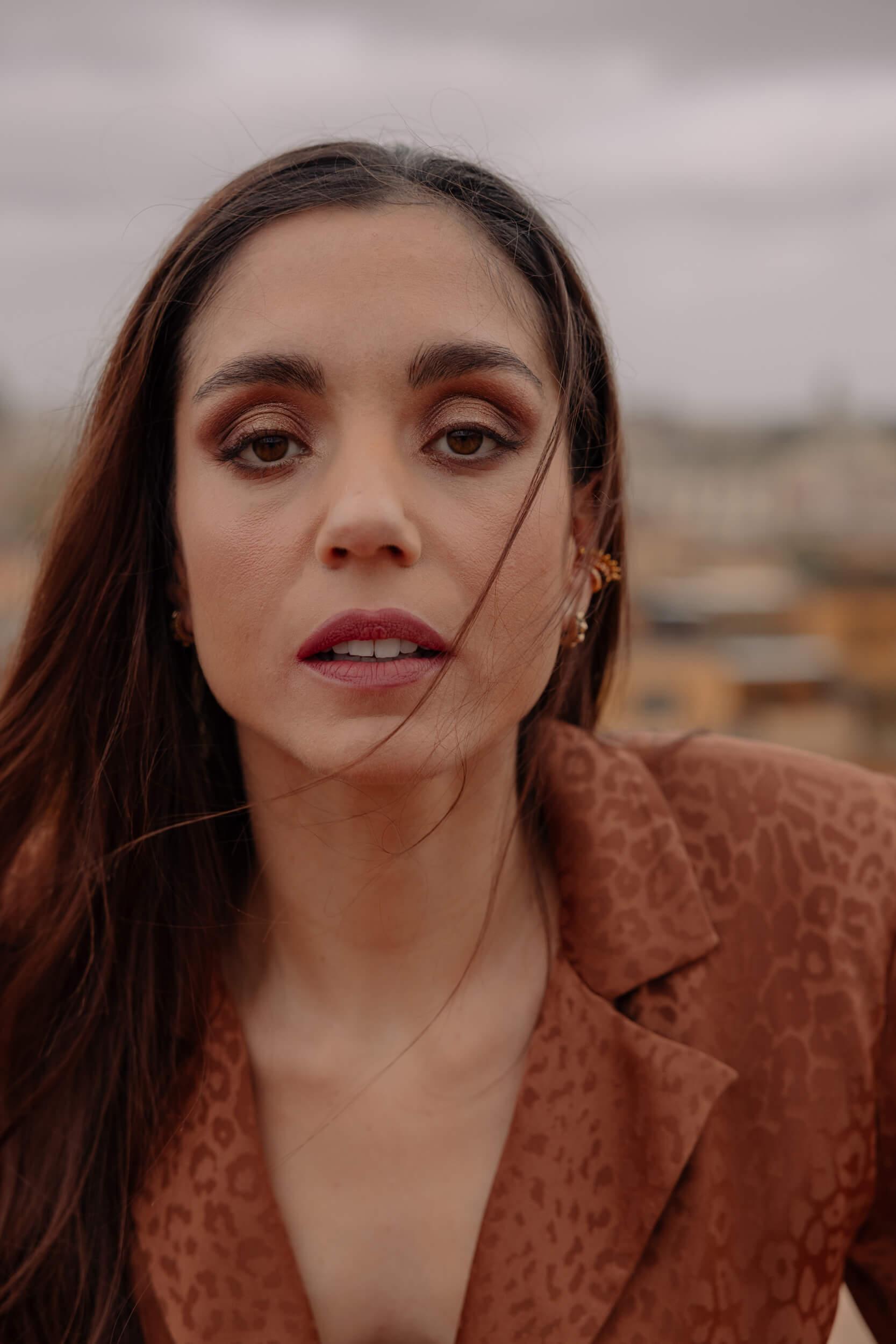
Did you make any particular research about the time, setting, and themes in order to prepare for filming?
Memories were my primary source of information. I was born in those years and although I only lived in the wake of the brand “Mixed by Erry”, it wasn’t hard for me to collect some piece of information, dig around old photographs, and so on and so forth.
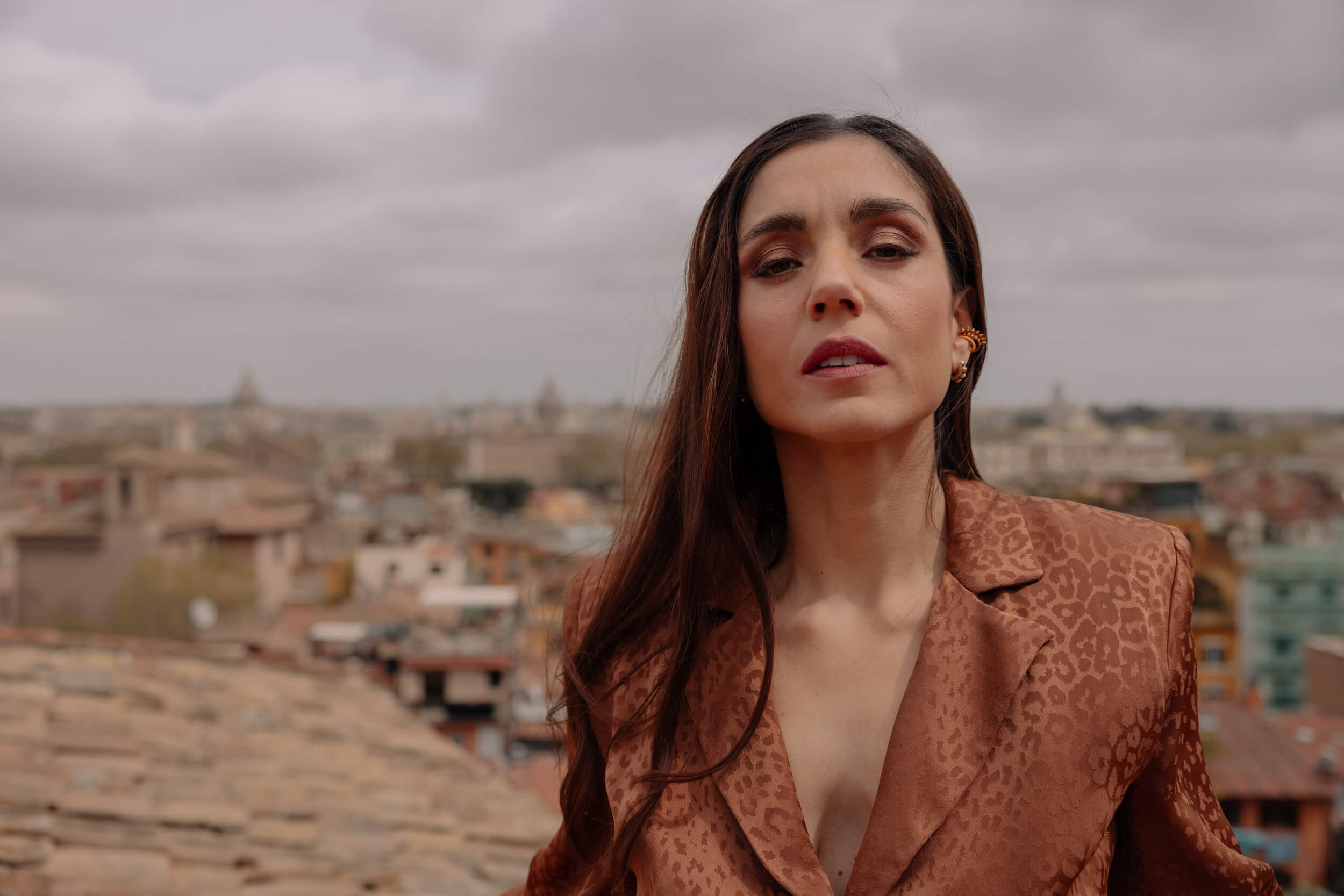
The movie talks about the rise of the musical empire of Enrico “Erry” Frattasio, a young man who, together with his brothers, turns his mixtapes into a real international and illegal enterprise. What’s the role of your character in the story? Can you tell us something more about her and how you worked on it?
I don’t know how much I can unveil, to be honest. However, I can tell you that one aspect of my character was very far from me, even though I could recognize it: the devotion to the household and its inhabitants, which was typical of our grannies. My grandmas were very different from each other, but they both had this trait that was typical of their time, of housewives, and that must have left a very minimal trace in my DNA.
So, finding myself on such a set, wearing the shoes of a woman whose life was limited to her house walls, has left me a sense of unease, as usual, as if I felt an acute and constant itching on my back, in a point that I can’t reach. It’s hard to get rid of it.
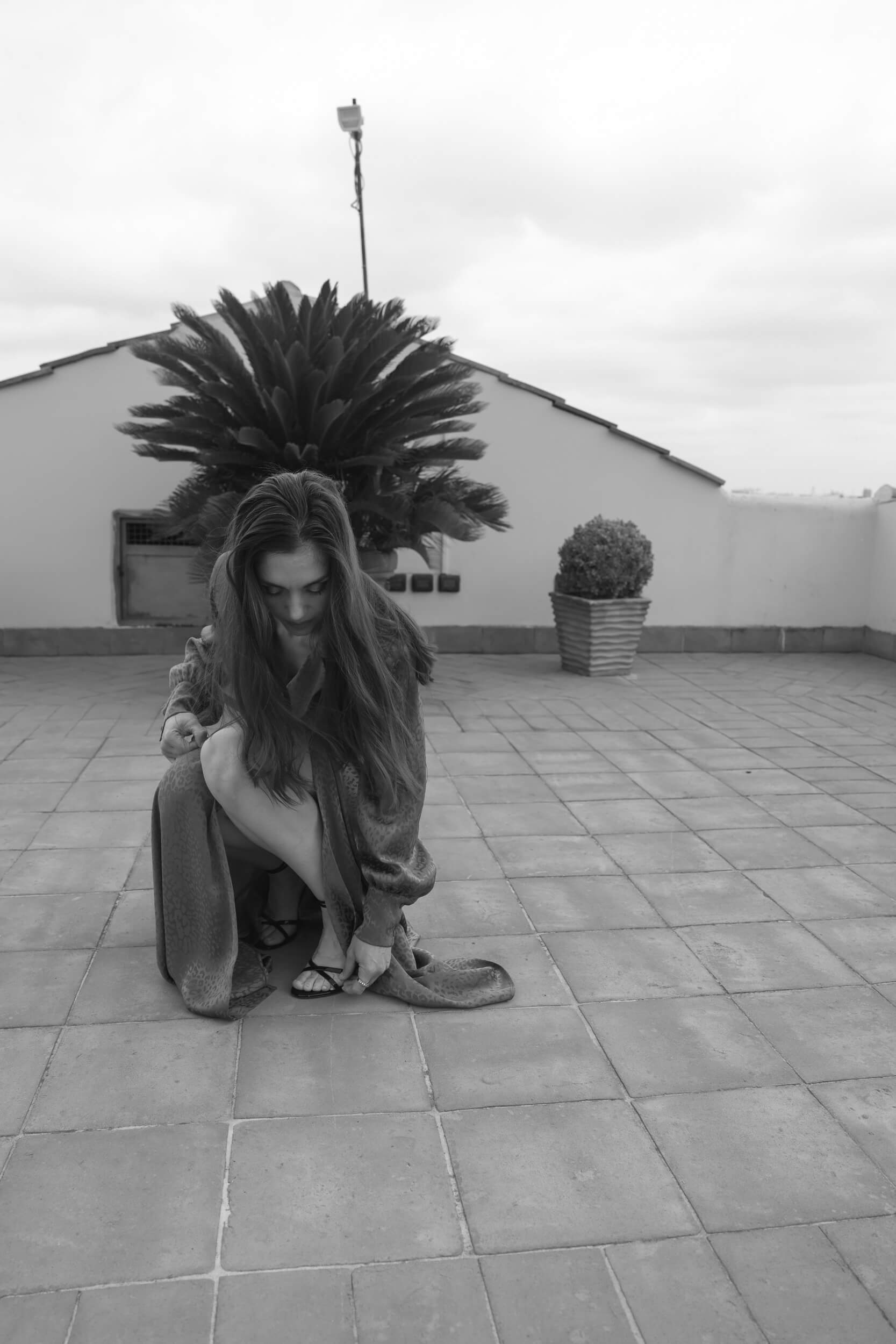
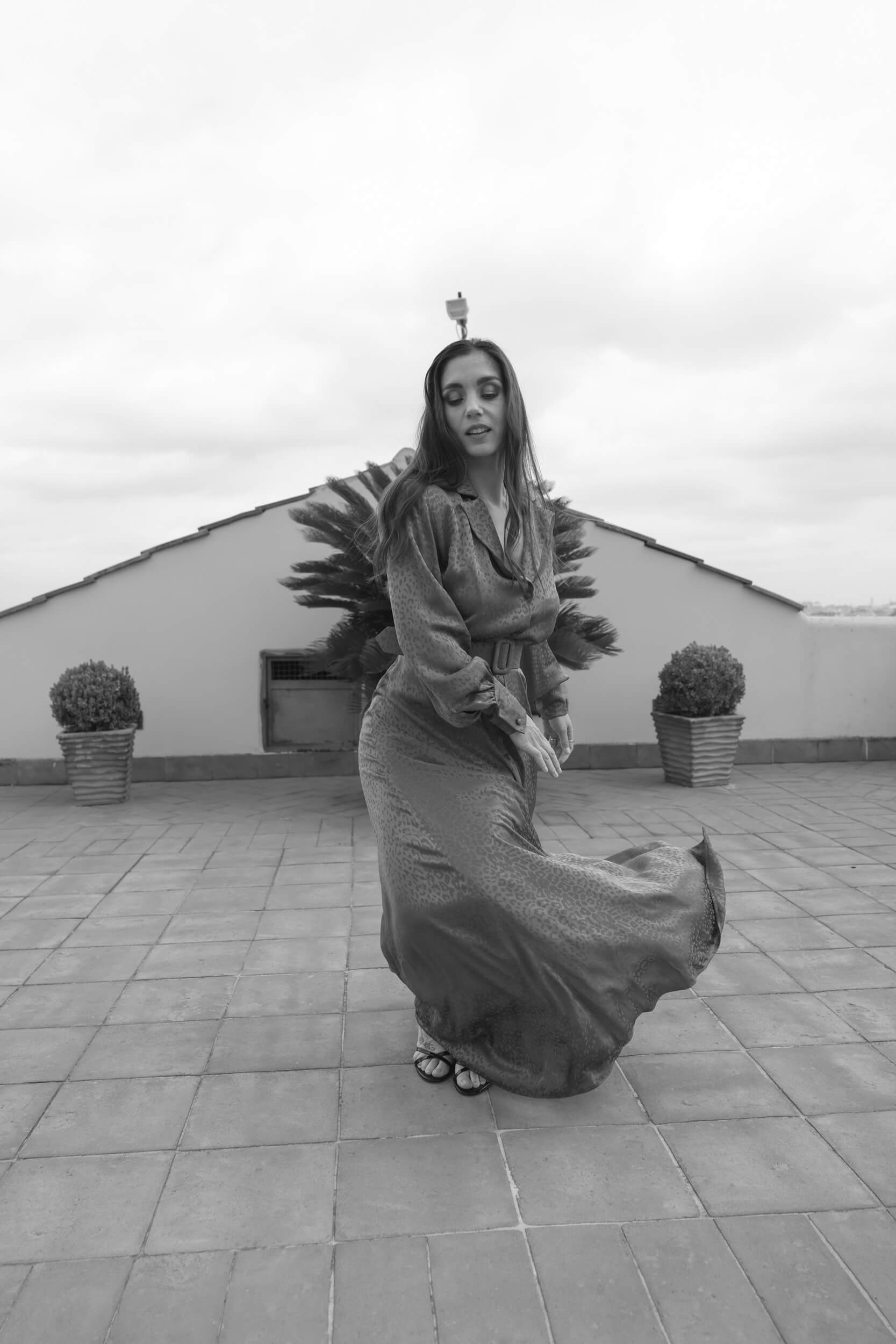
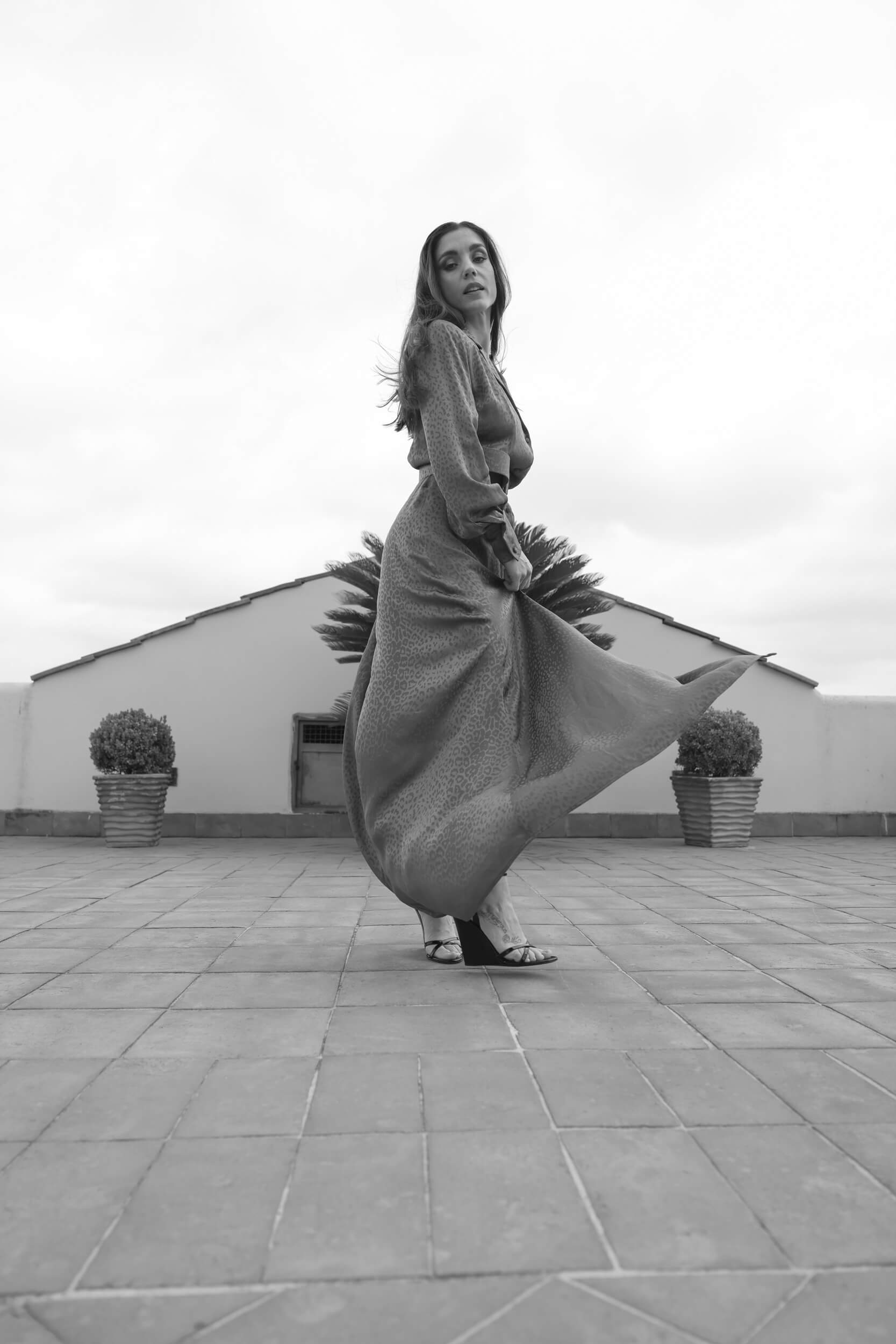
“As if I felt an acute and constant itching on my back, in a point that I can’t reach.”
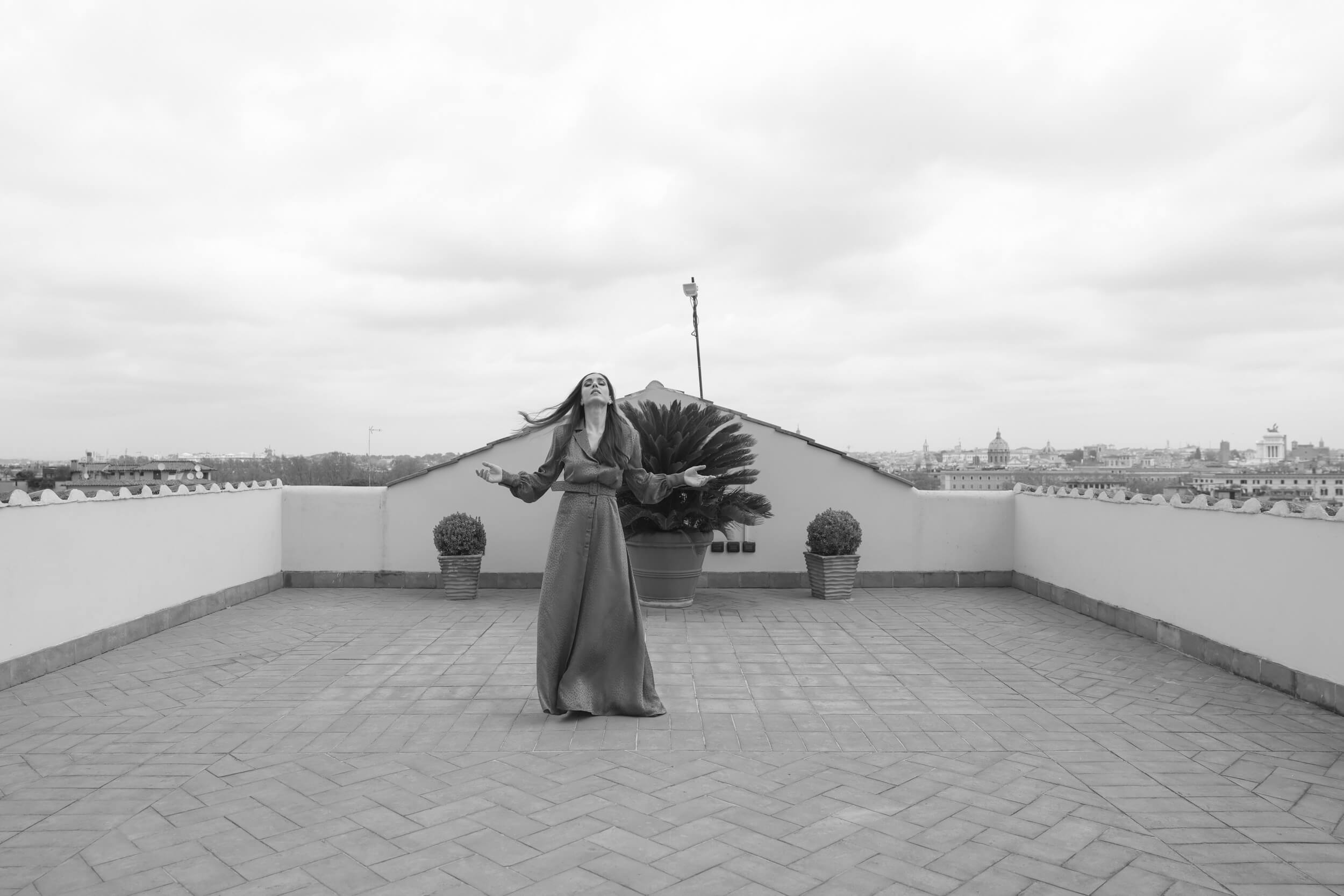
The life of the main characters has been transformed by music, its power, and its ability to involve and reconcile everyone. In your life, as well, music plays an important role: you’ve recorded a single (“Carpe D.M.”) and a collab with Ntò (“Pe t’avé”). What does the musical side of your career and personality represent for you?
Music is a vital part of my everyday life, just like it is for everyone, I guess. Sometimes, I like to imagine a soundtrack that magically starts playing in the most significant moments of my life, I don’t know, from my first kiss with my husband up to my desperate runs not to miss the train… It would be fun to realize that, suddenly, a song has started playing in Dolby surround to complete the tale.
In my career, for now, I’ll do with these two singles that I recorded for fun, in a way. Who knows, maybe in the future…
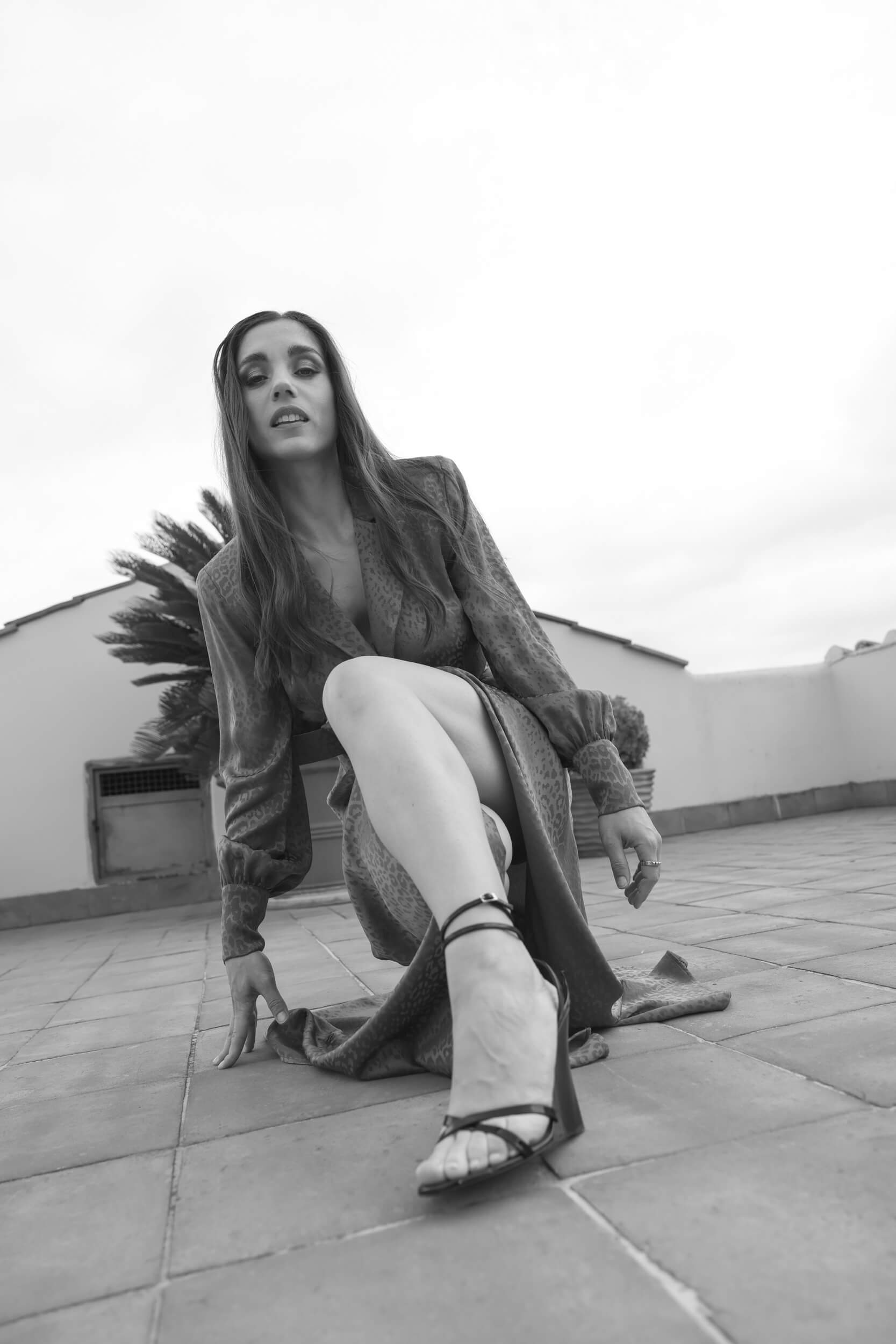
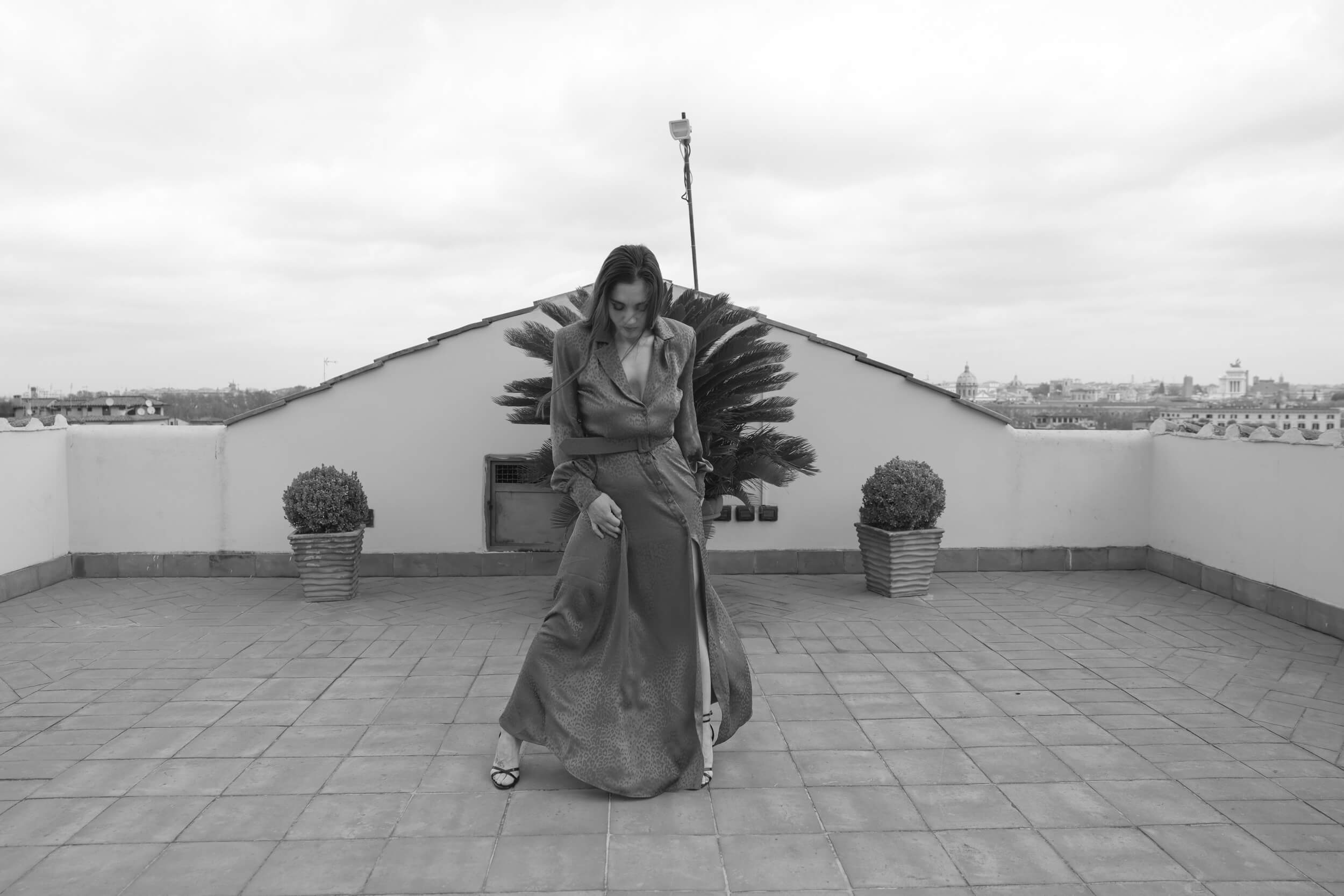
Sydney Sibilla defined this movie as a story “that has always made me realize how talent and passion have no nationality and cross every boundary”; between international and local productions, your talents and passions have actually crossed national boundaries over the years: is there a boundary you haven’t crossed and wish to cross?
I don’t like the word “boundaries”, in a world that keeps defending them with useless nationalism, building up walls, and starting wars to redefine them and claim territories. I wish they didn’t exist.
I’ve never thought about my existence in terms of boundaries, but only of continuous discovery. Just like writing, which is new land beyond my horizon. I went through a phase – and I still am in that phase – where I would be thirsty for stories written by someone else, as I thought that being part of them would be the highest form of self-accomplishment. Today, I feel like I can be a writer and write stories of my own, shaping them as I like, so as to feel totally represented. From a narrative point of view, I mean.
This, perhaps, is the boundary I aim at going beyond, as soon as possible.
“I don’t like the word ‘boundaries’ […]. I wish they didn’t exist.”
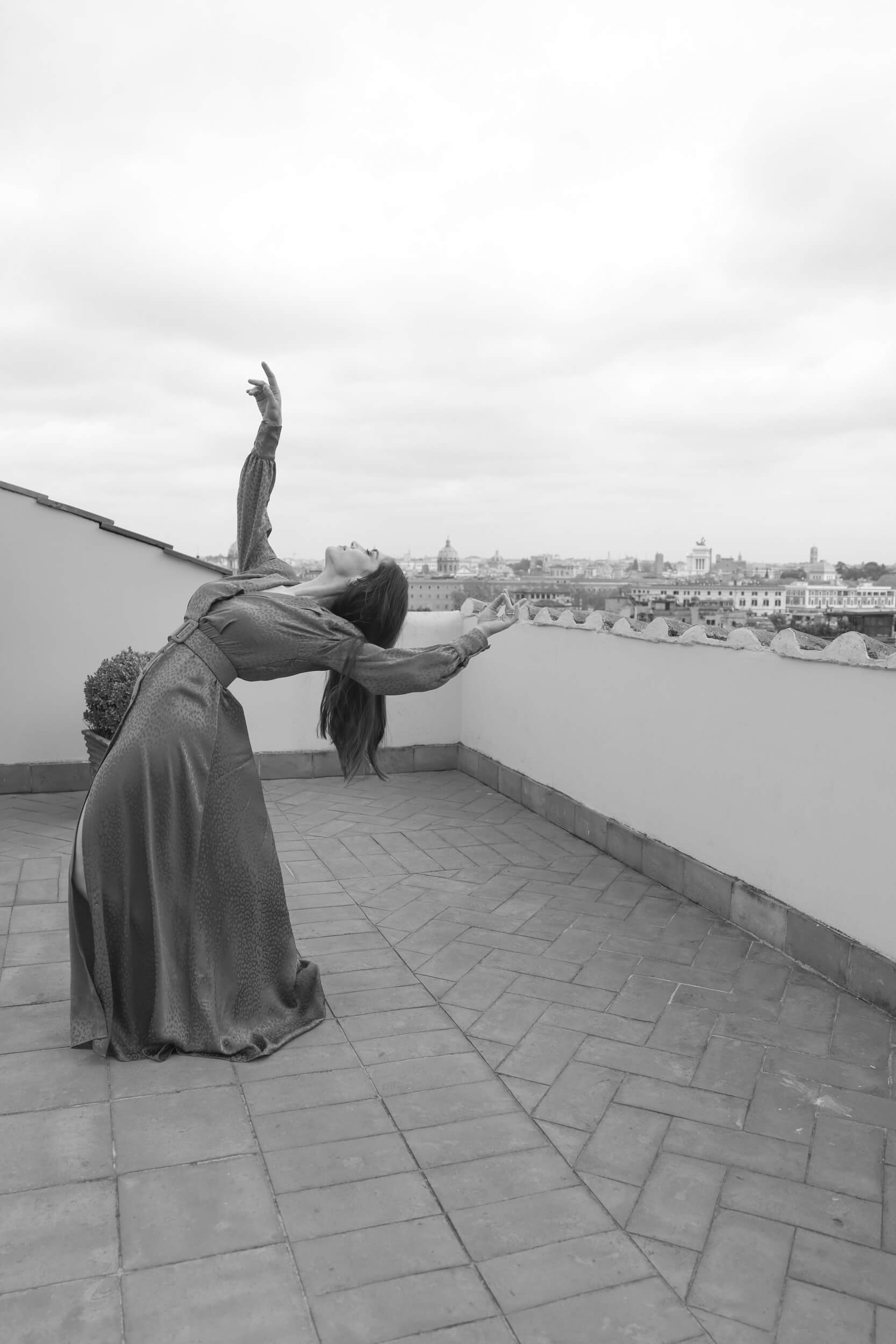
One of your latest projects is “Piove”, by Paolo Strippoli, which is being released next month. The movie portrays a Rome fueled by rage, a common feeling to all its inhabitants: it’s the depiction of an extreme situation, a state of mind, and an environmental condition that is not too far from reality. What responsibility did and do you feel on you when telling such a meaningful story like this one seems to be? And what “hidden message” do you hope reaches as many audience members as possible?
Horror is certainly a genre that, through the exasperation of evil, but also through splatter and its structural violence, aims at always facing themes that have a certain social weight. In particular, I think “Piove” does this because it starts with images suggesting that the anger that’s perpetuated over the course of the years, the centuries, and history are soaked in the sole on which we live, and in that same earth they shall return. The concept is that of the evaporation of these fumes from the manholes that, throughout history, have collected human violence and keep collecting it and somehow return it back to the people who live on the same earth.
So, the “hidden message”, so to say, is that one: so many times, the movie references the feeling of being forced to live together in a society, but the truth is that society helps limit that violence and organize that violence that could be natural to human beings, who, consequently, try to organize it. This is what the movie aims at doing, giving the audience responsibility rather than giving it to me. My responsibility is to hope that the story reaches as many viewers as possible, but this is something that doesn’t only depend on me. So, the viewer is the one who has the responsibility to understand this message, realize this aspect of themselves and the society they live in, and change it.
In this movie, you play Cristina, a loving mother who turns into a “phantom of discord”, defied by the antidote of the family and the “union that is strength” against evil and anger. What aspect of your character caught your interest and what did you learn from her during your performance?
I love ghost stories, stories of characters who haunt people in the present. A ghost is something from the past that always resurfaces, that looms over our lives, and influences us a lot. Cristina is not really a phantom of discord, but rather a phantom of guilt, I’d say, which you want to get rid of and pass on to someone else. This extraordinary family drama is on the horror genre background, which is one of the reasons why I chose to make this movie: the idea of a destroyed family that cannot get over a terrible event is the aspect that struck me the most when I read the script.
As far as Cristina is concerned, I think you don’t always have to learn something from your characters: mine, this time, has been a nice one to play and, to be honest, more than the character in itself, it was her ghostly nature that really intrigued me, her presence beyond her life, which you can feel even if the character isn’t really present in the movie, you can sense it from the beginning and it’s amazing.
She’s a character who’s already there even when she’s not.
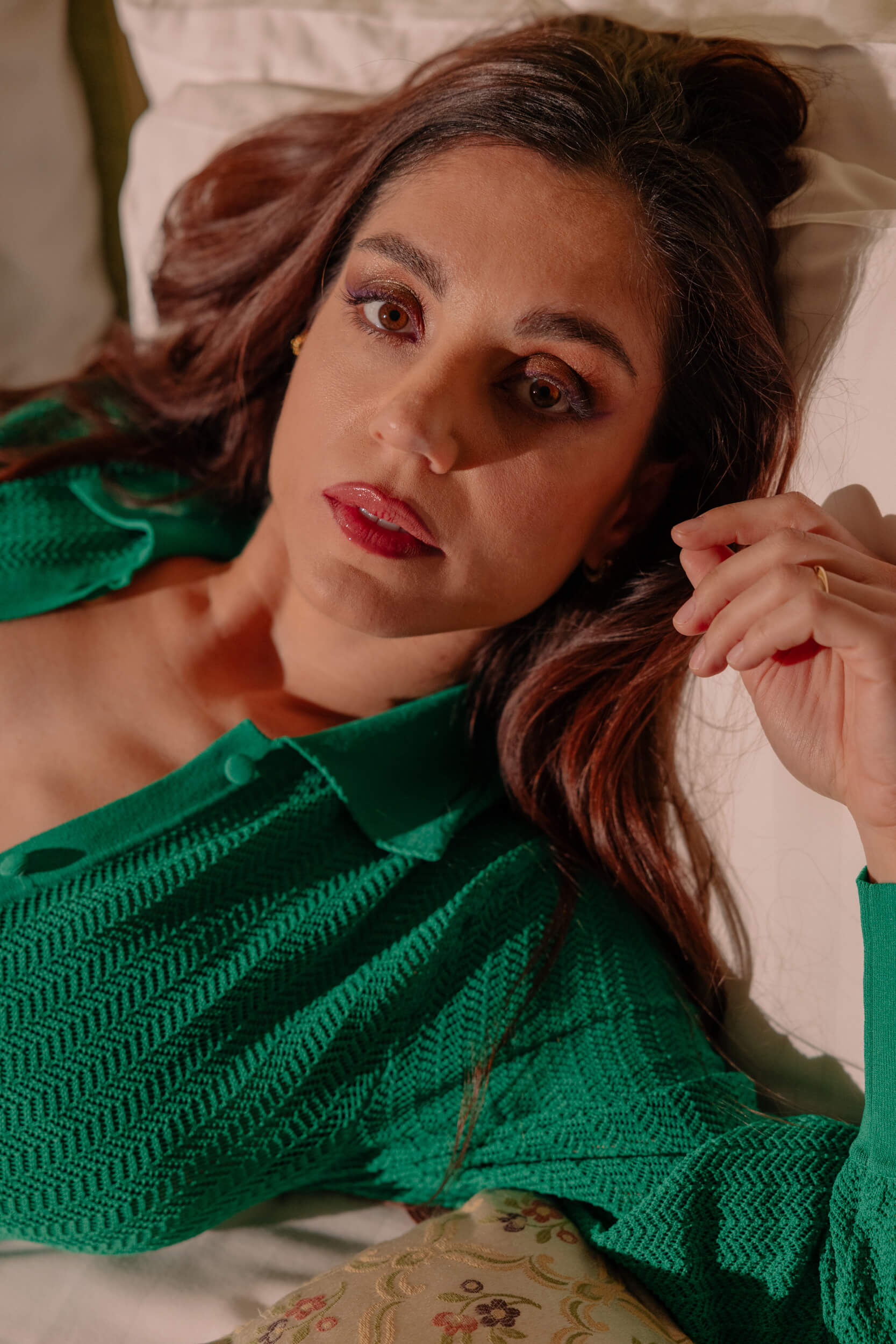
On the job and in life, do you think you’re more instinctive or rational?
I don’t know. Really. Sometimes, I’m a chess player, sometimes, I’m a caged animal waiting to escape. Honestly, I wouldn’t know who wins over whom. They coexist and bear with each other [laughs].
What are the first three songs on top of your playlist right now?
Lately, I’ve been listening to Ezio Bosso nonstop. But my forever loved ones are never missing: Ella, Whitney, Aretha, Nina, to name but a few.
What’s the song describing this very moment of your life?
“Big Dreams and Faded Jeans” by Dolly Parton.
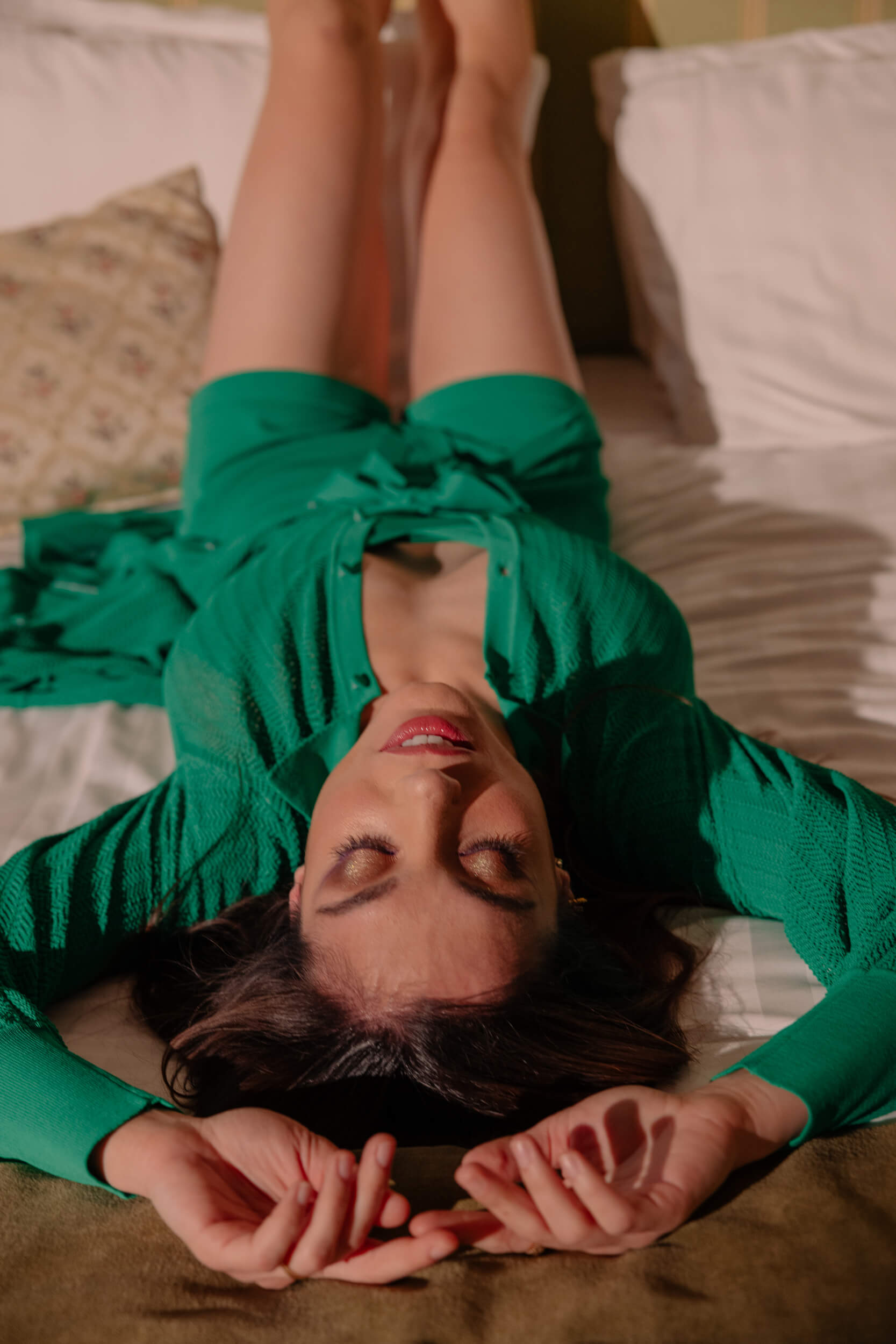
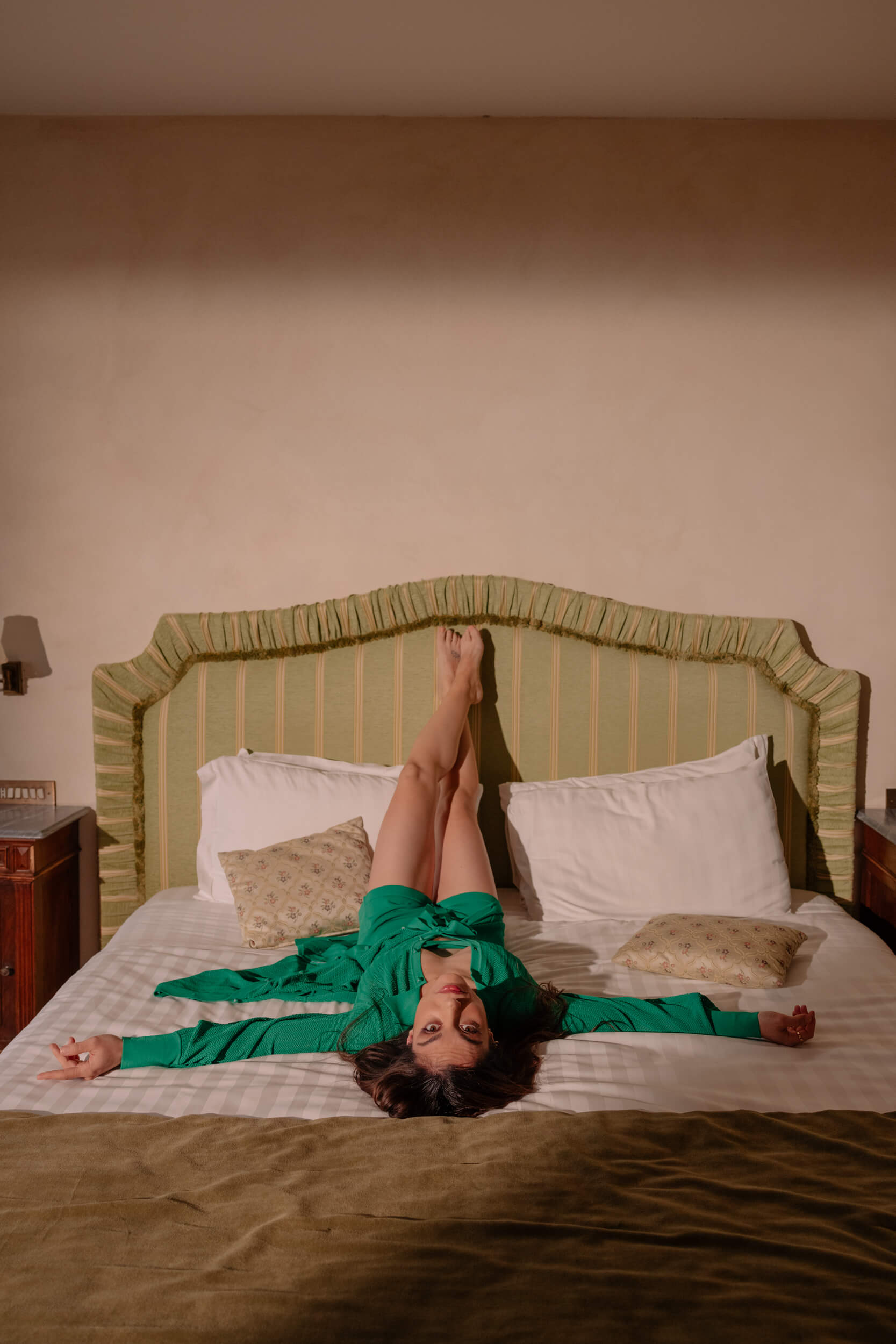
What’s the first DVD/VHS you’ve bought?
“Beauty and the Beast”. Even though my parents bought it for me. The one I bought with my own money… I honestly can’t remember, but if I’m not mistaken it was “Once Upon a Time in America” and “Cinema Paradiso”, I think I bought them together. Anyway, they were the first ones. Later on, “Umberto D”, of which I have an old VHS tape, back when movies could be recorded from the TV when they aired. Maybe, it wasn’t legal… But anyway, it was still the years of Mixed by Erry… [laughs].
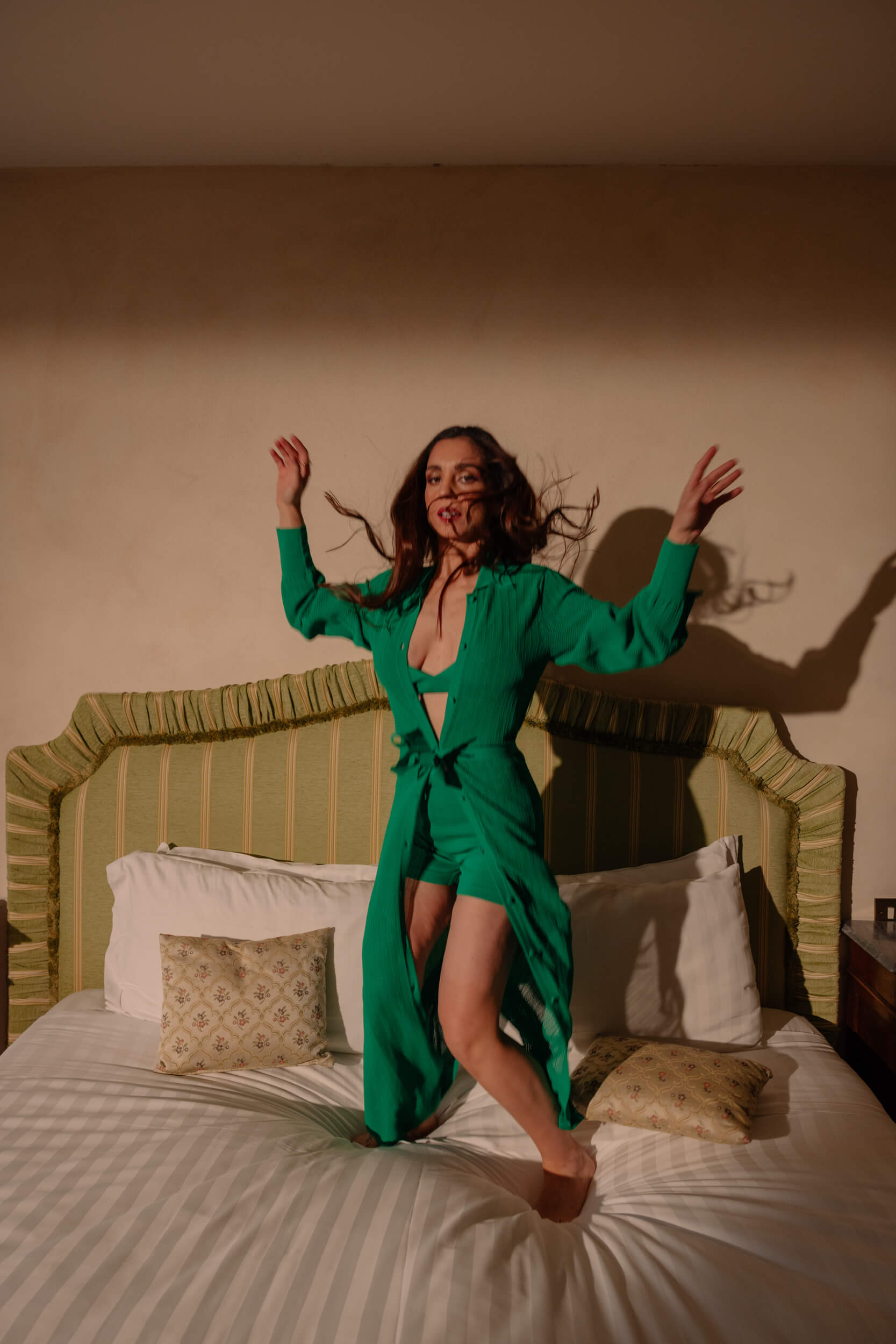
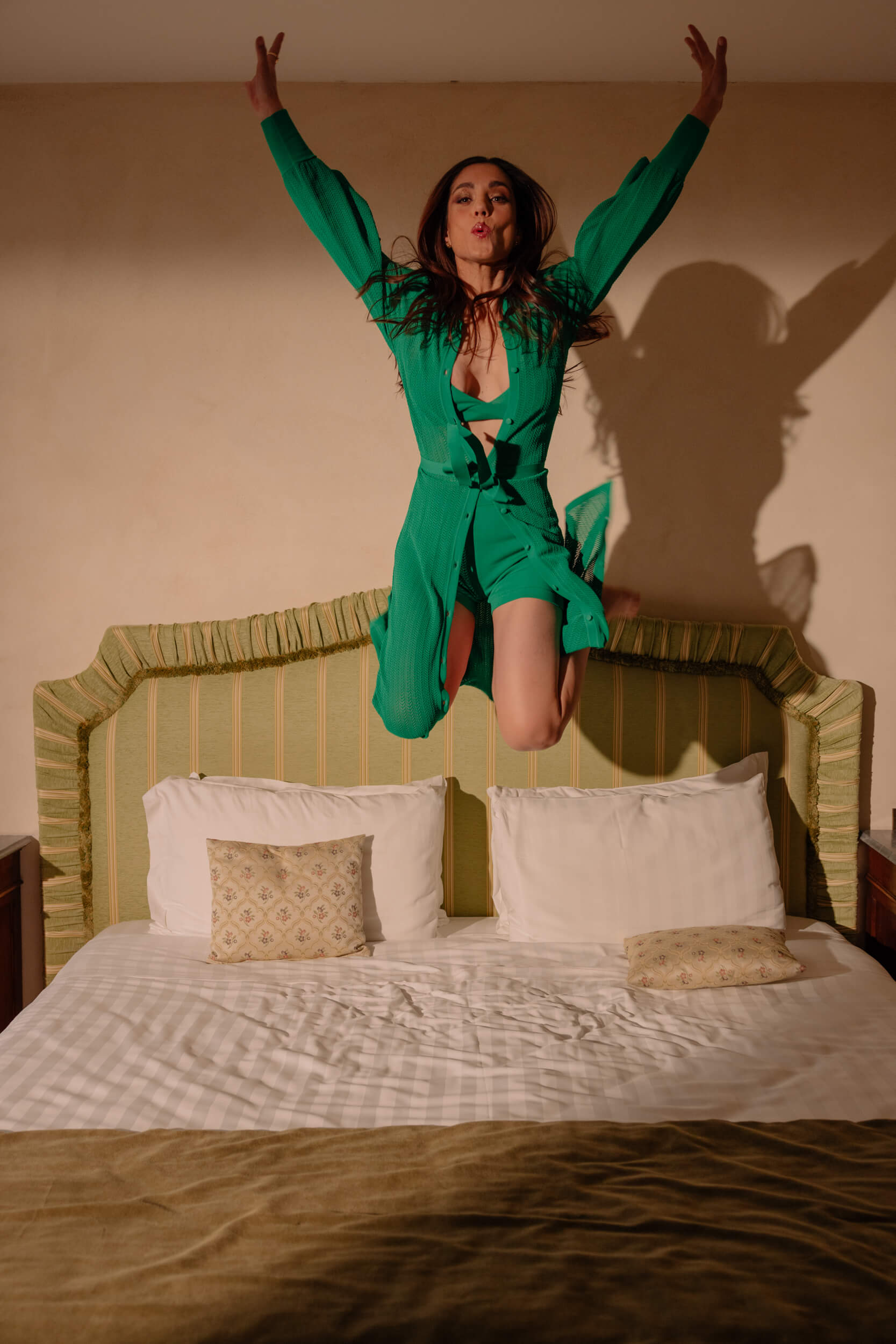
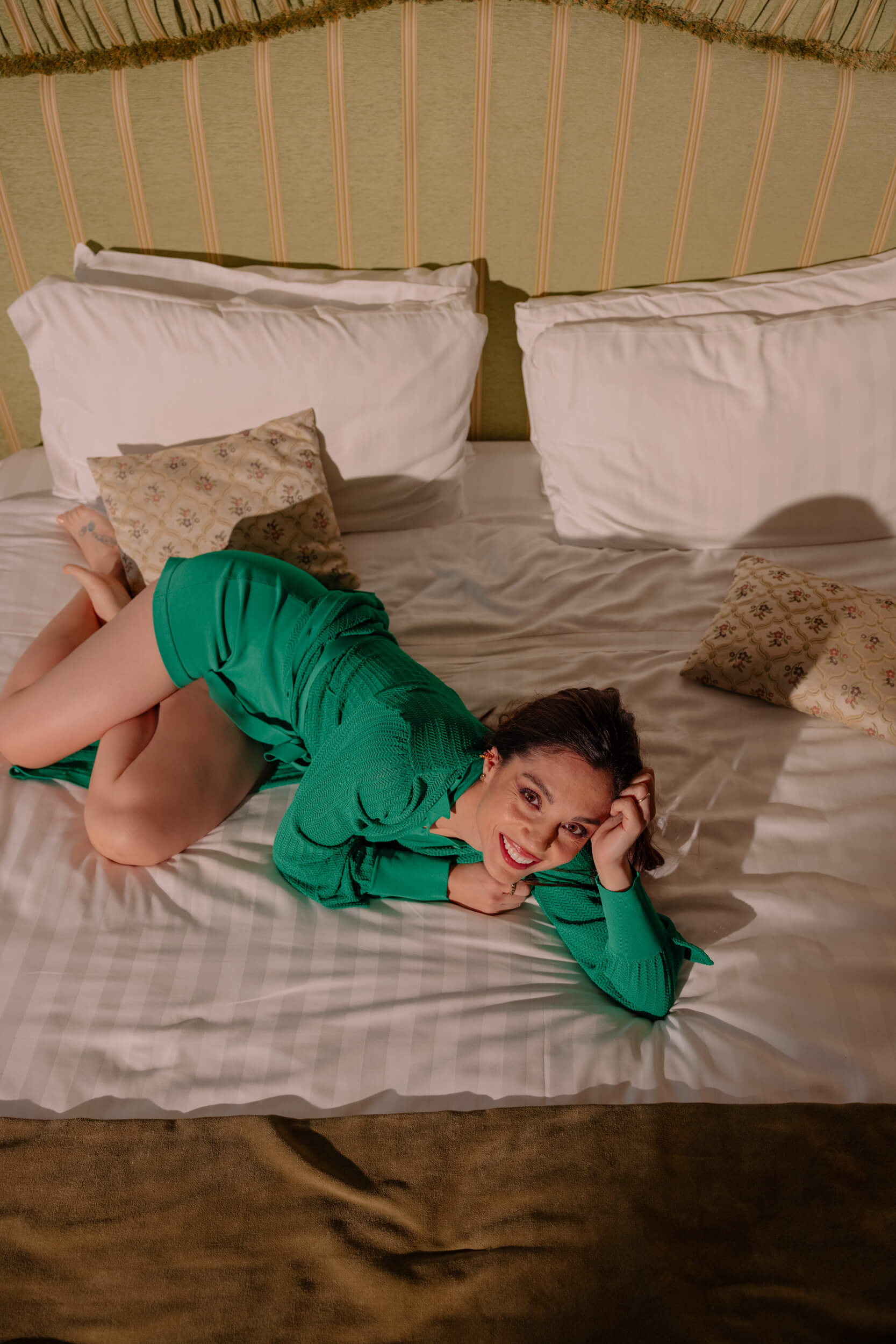
Your latest binge-watch?
“The Sandman”. Amazing.
The latest movie or show you’ve seen that made you discover something new about yourself?
“Alias Grace”. Mental health is a very liable concept, which over the centuries has thinned the border between it and its twin sister, madness. That madness territory that’s within all of us, I feel like I can see it closer than we expect. And from time to time, I open a few windows, to peek inside.
Your musical hero?
Whitney Houston, no doubt. I grew up listening to her songs and her perfect, scratchy voice. When she passed away, I cried as if a part of me that I’d never thought could die had just died, instead.
A real-life character you would like to play in a biopic?
I’ve been lucky enough to play Francesca Cabrini in a movie that should be released soon. She was an Italian woman who, in the US and other countries, helped immigrants to fit in the local communities, fighting for them to have equal rights and opportunities.
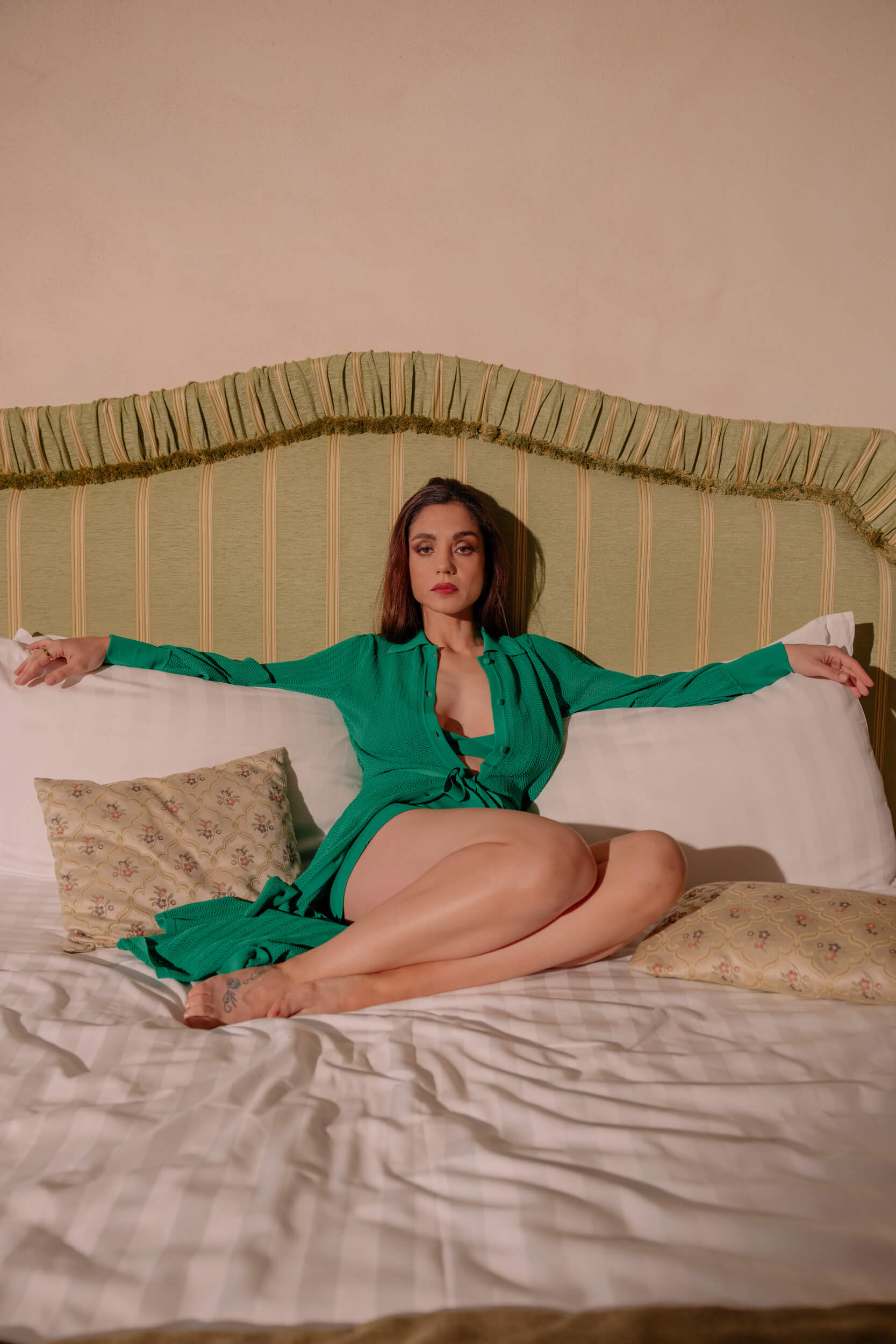
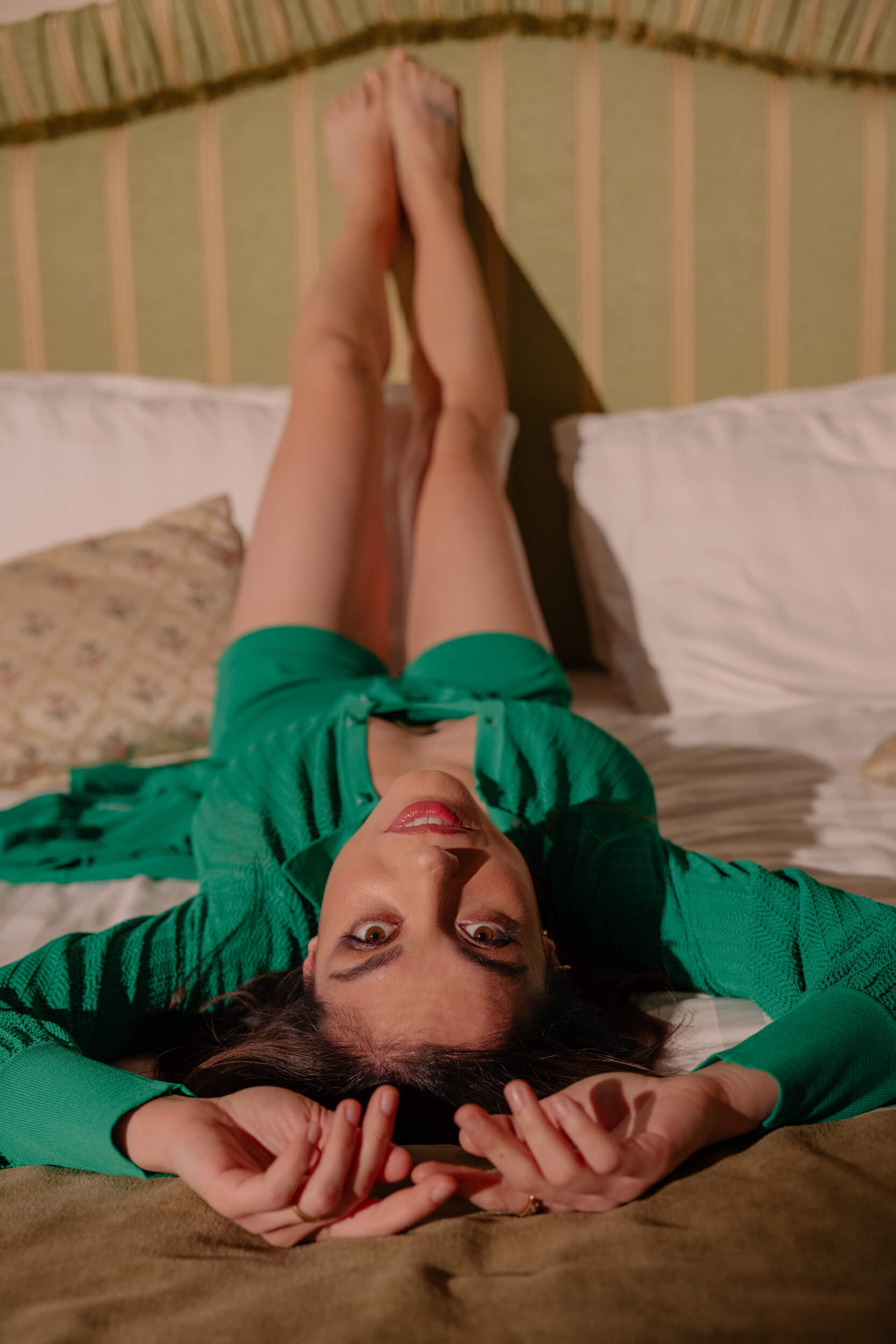
Who or what inspires you in your private and professional life?
I often rely on philosophy and literature. I’m a bookworm. Authors and fictional characters who can overwhelm me and upset my points of view. I’m inspired by them. Finding confirmations is too easy, we do it on a daily basis without realizing it. But testing ourselves with opinions that are contrary to our own, that’s where inspiration, evolution, and art live.
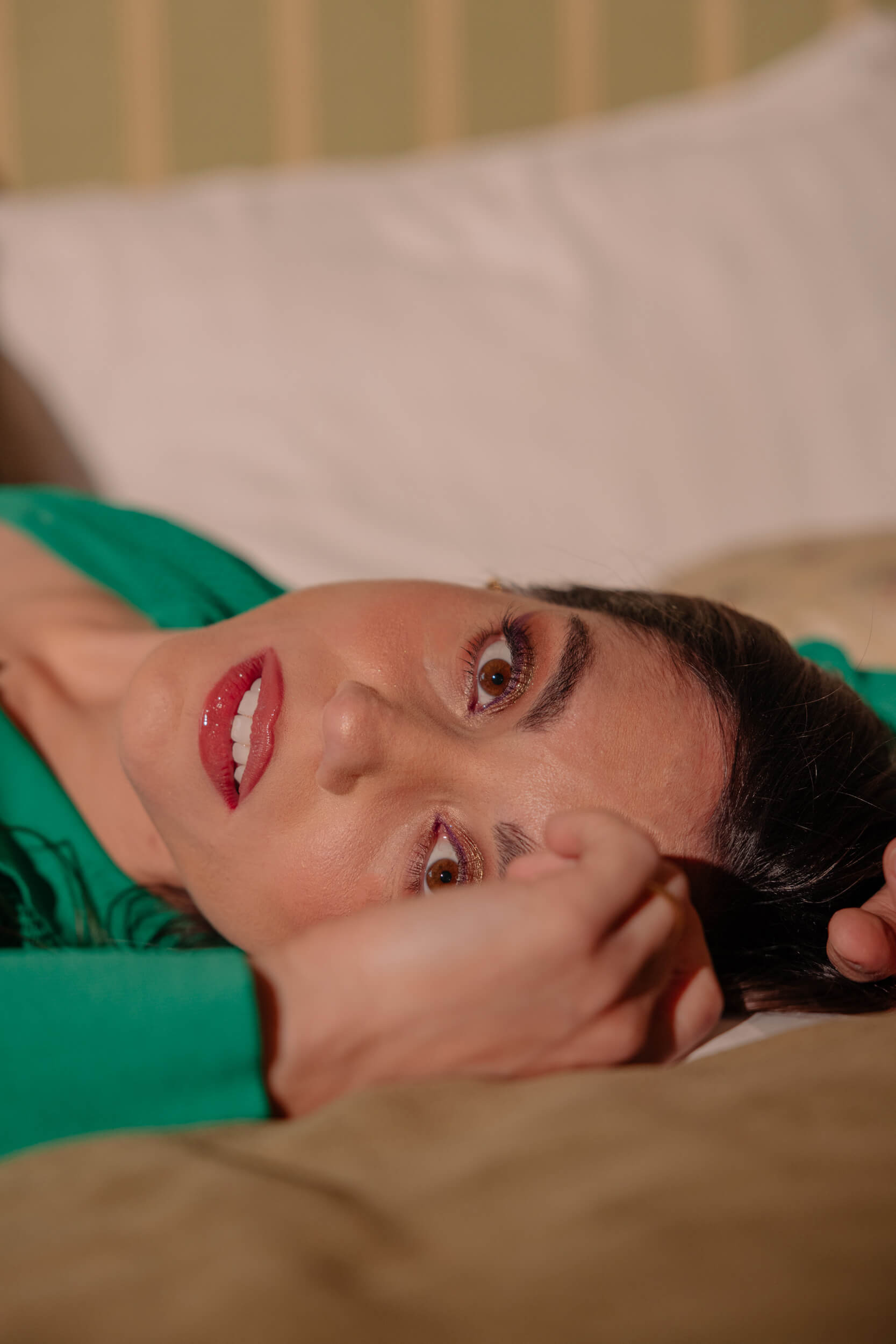
“Testing ourselves with opinions that are contrary to our own, that’s where inspiration, evolution, and art live.“
The book on your nightstand right now?
“Tyll: A Novel” by Daniel Kehlmann.
What’s the bravest thing you’ve ever done?
I guess I’d say: following my dreams.
But then, I think about that one time when on my cross bike, I cycled down the Ruta de la Muerte, a sheer path that starts at 4000 meters and, in a steep drop, borders a mountain on the outskirts of La Paz, in Bolivia. Well, let me say that I did something pretty brave that time. They call it Ruta de la Muerte for a reason.
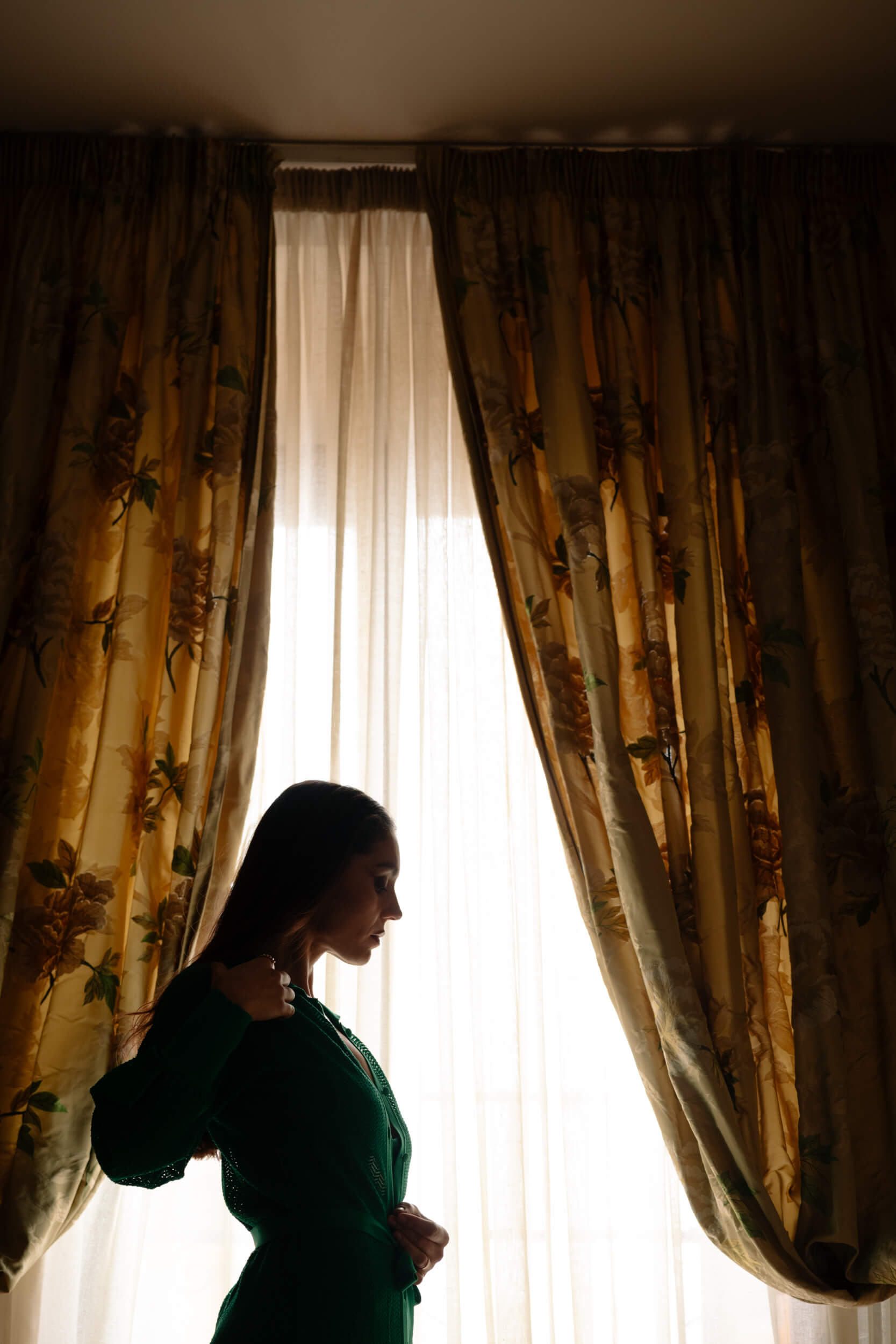
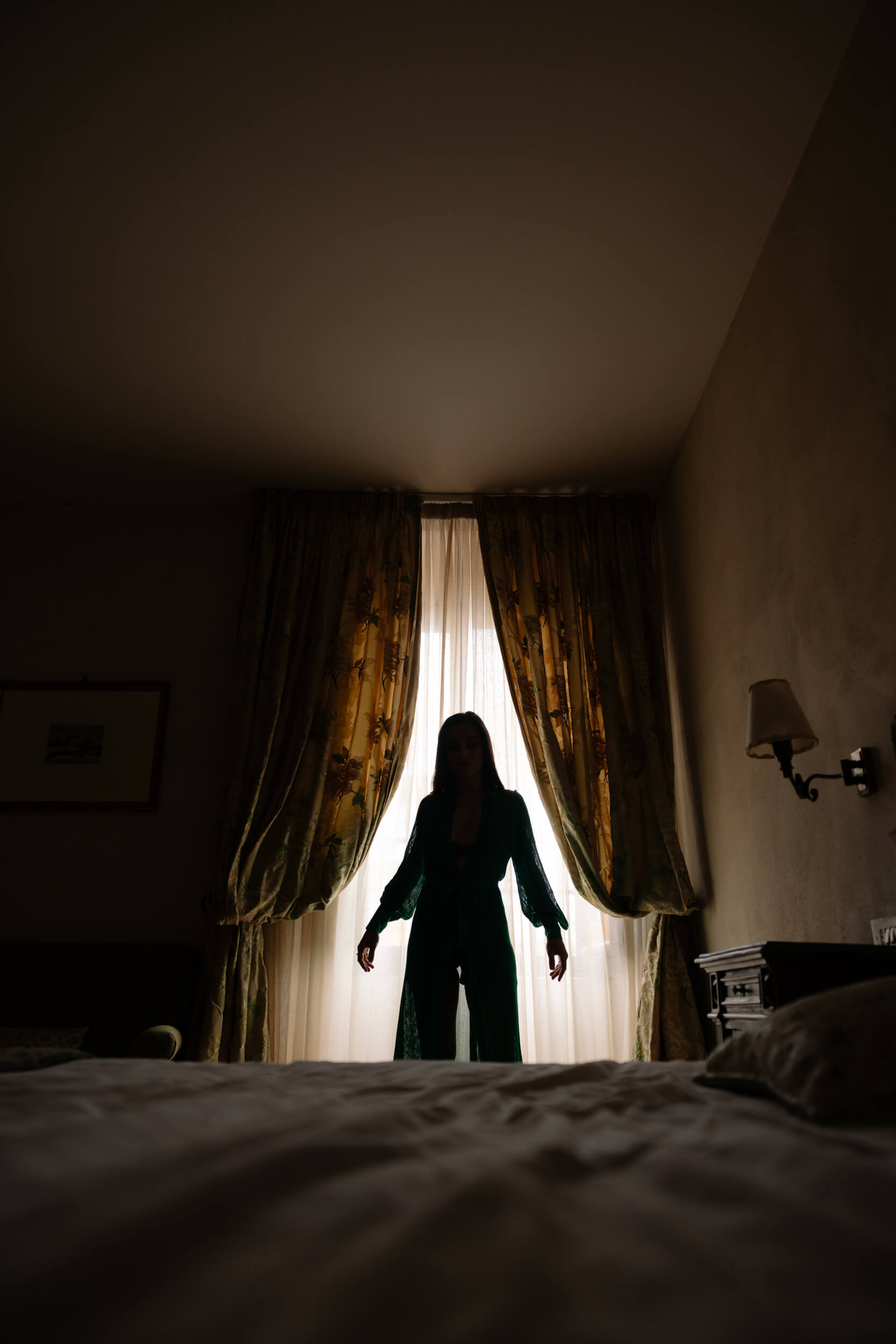
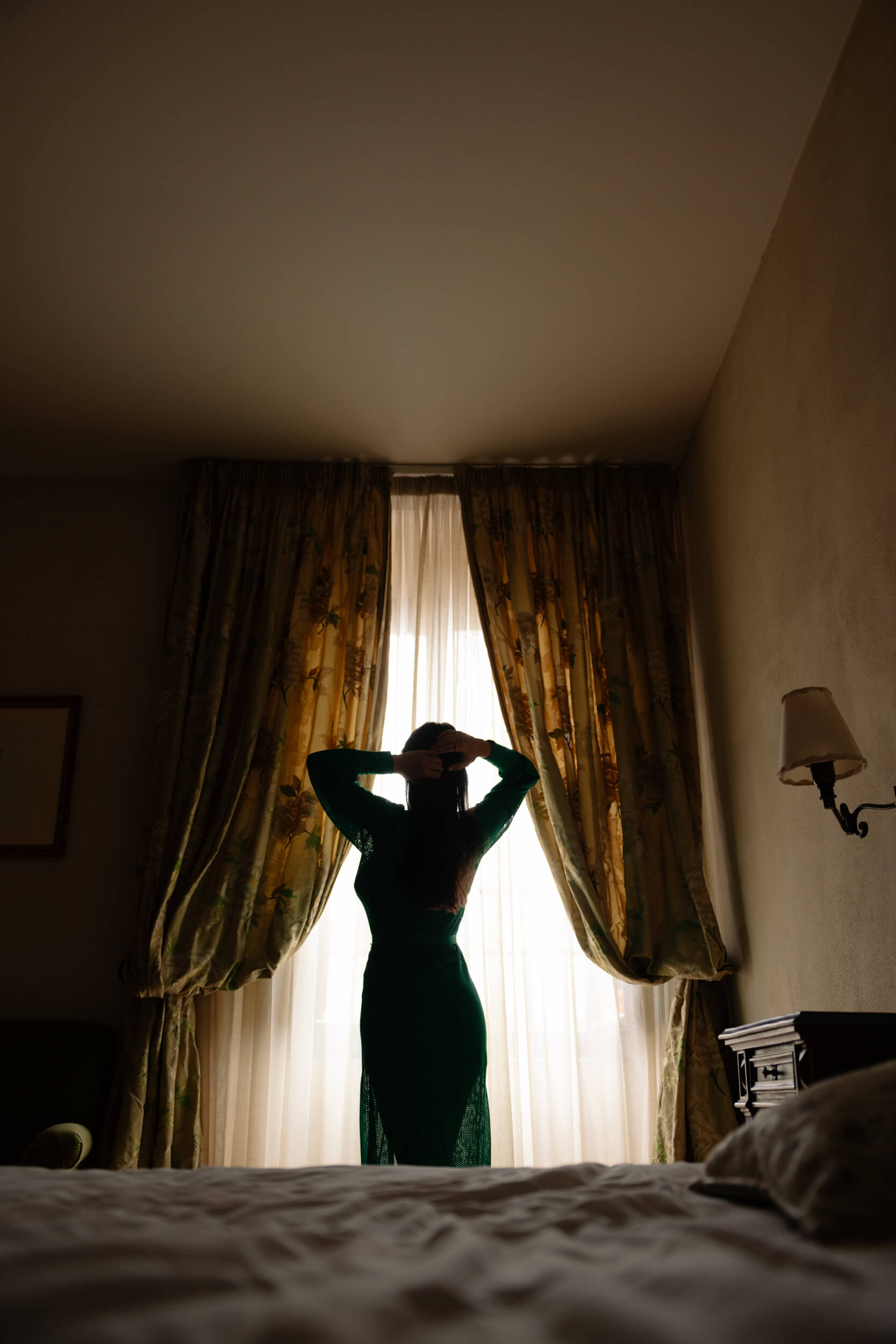
What are you afraid of?
Like Harry Potter, I’m afraid of fear itself.
If I feel fear, even though my legs are shaking, I go straight toward it and try to face it.
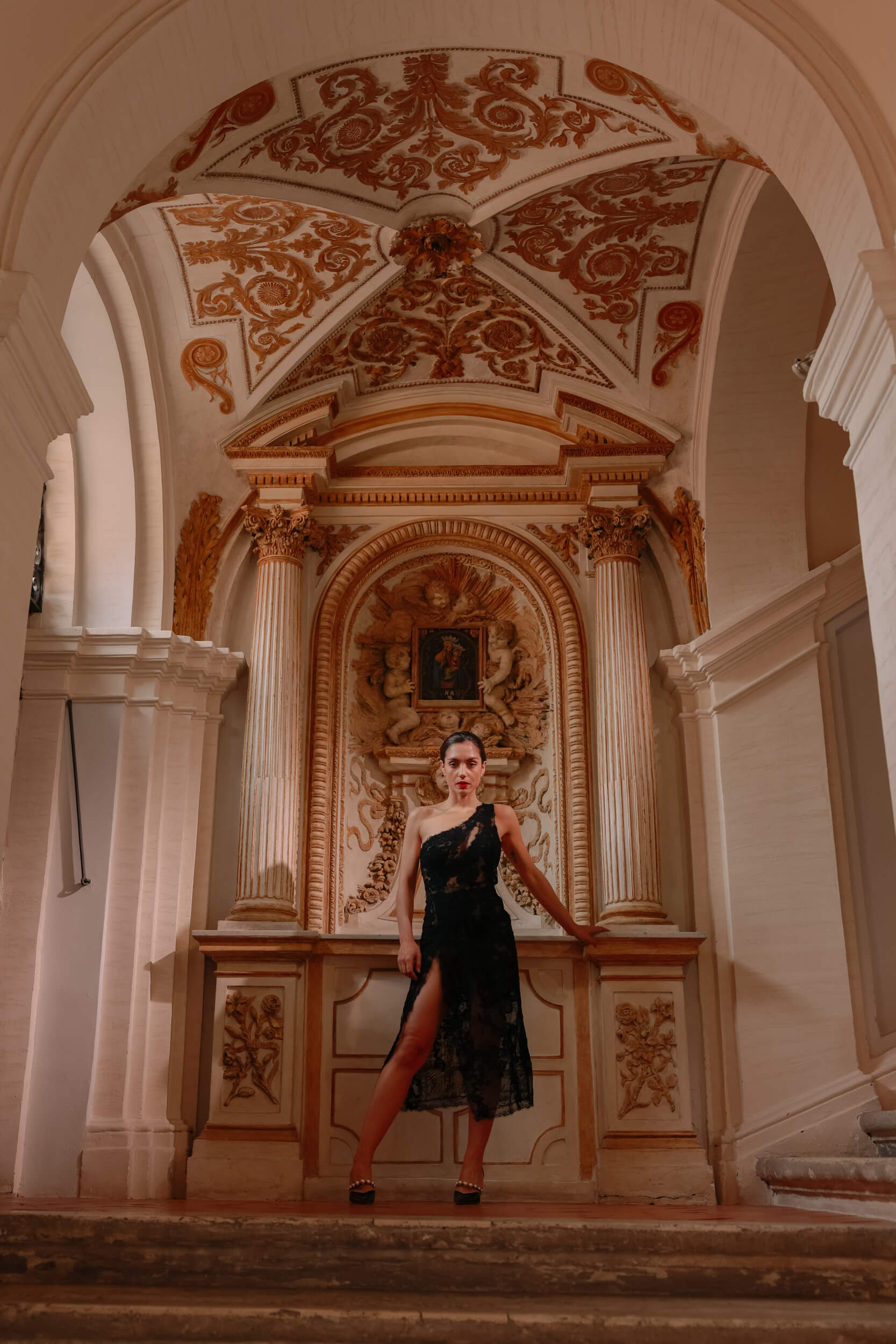
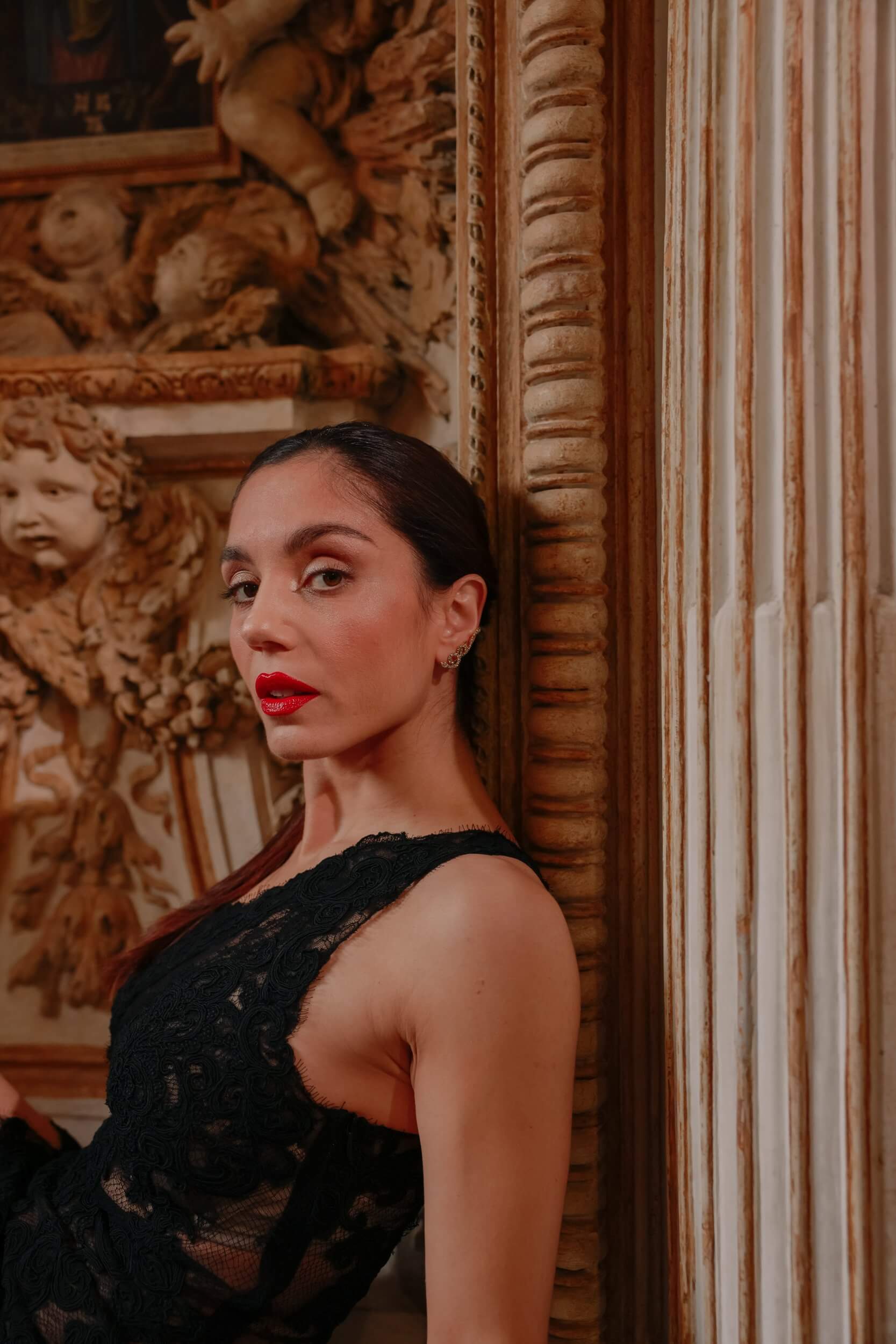
What does it mean to you to feel comfortable in your own skin?
Not having to constantly be subject to other people’s judgment, and being able to feel free to be whom we want, how we want. Have rights and exert them, without having to fight against people’s prejudice, which often corrupts the way we judge ourselves. Well, getting rid of this constant benchmark, I think, would make everyone feel much more comfortable in their own skin.
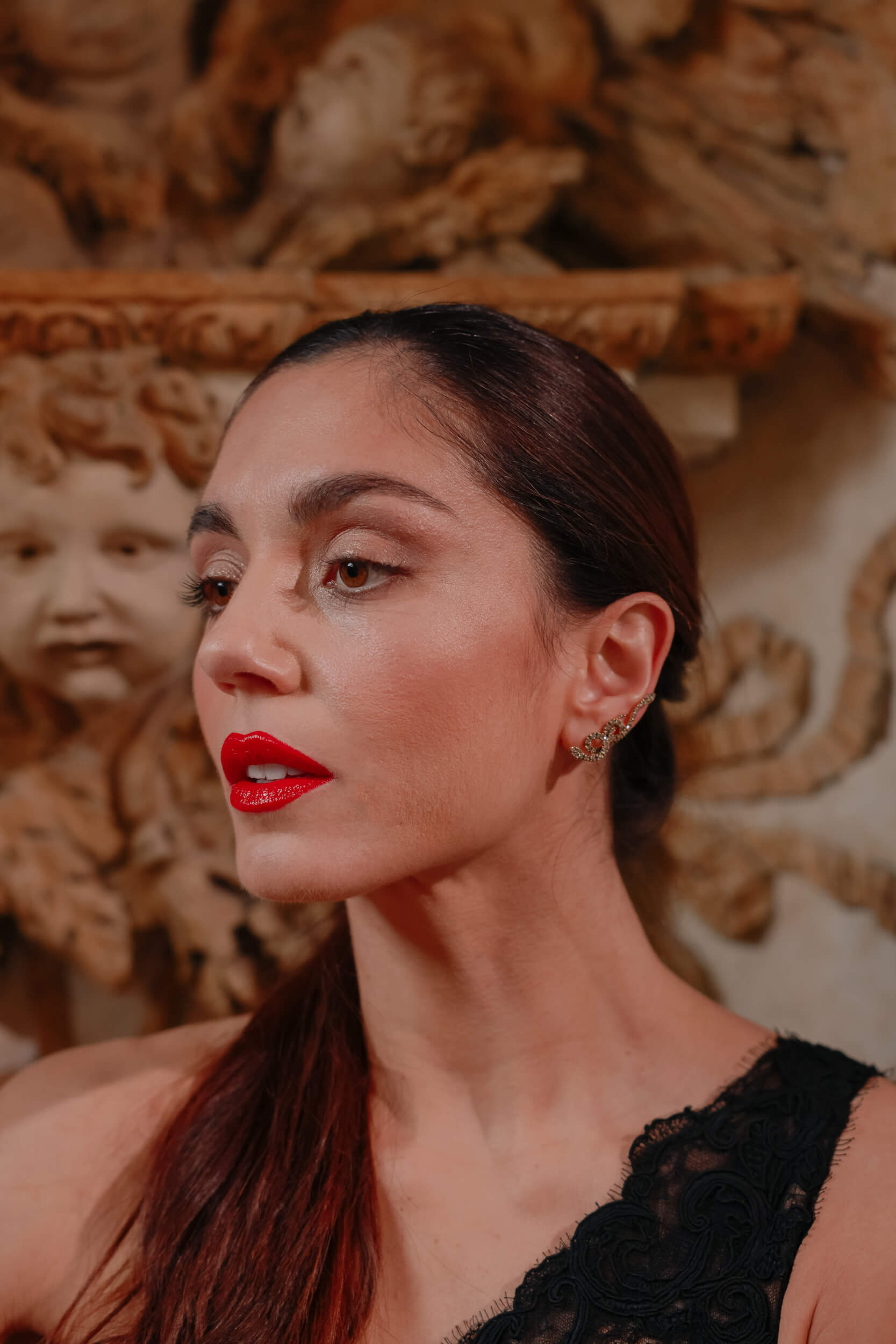
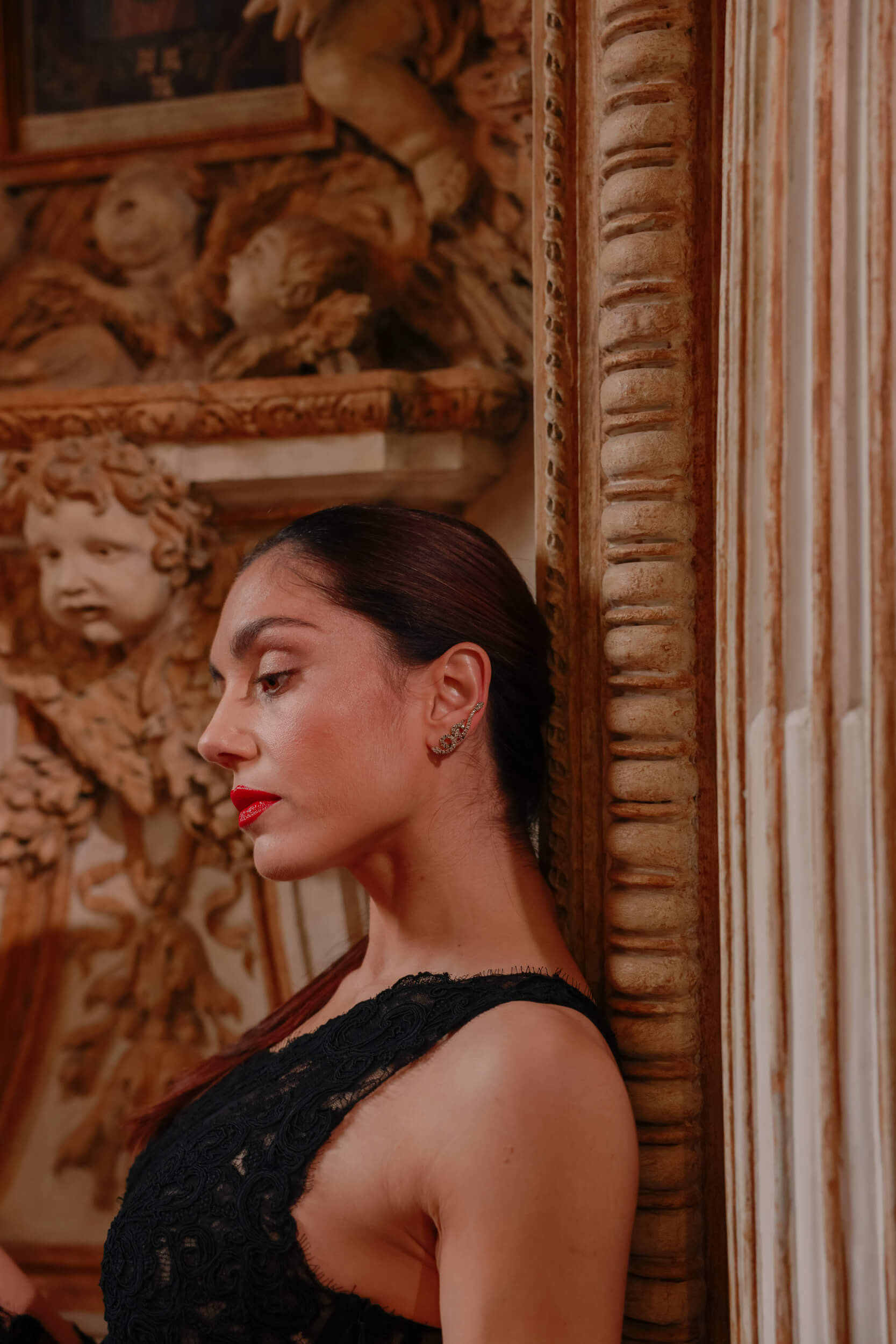
The latest thing or person who’s made you smile?
A colleague and director I’m currently working with. We’re a sparkling trio and, during rehearsals, we make each other cry from laughs.
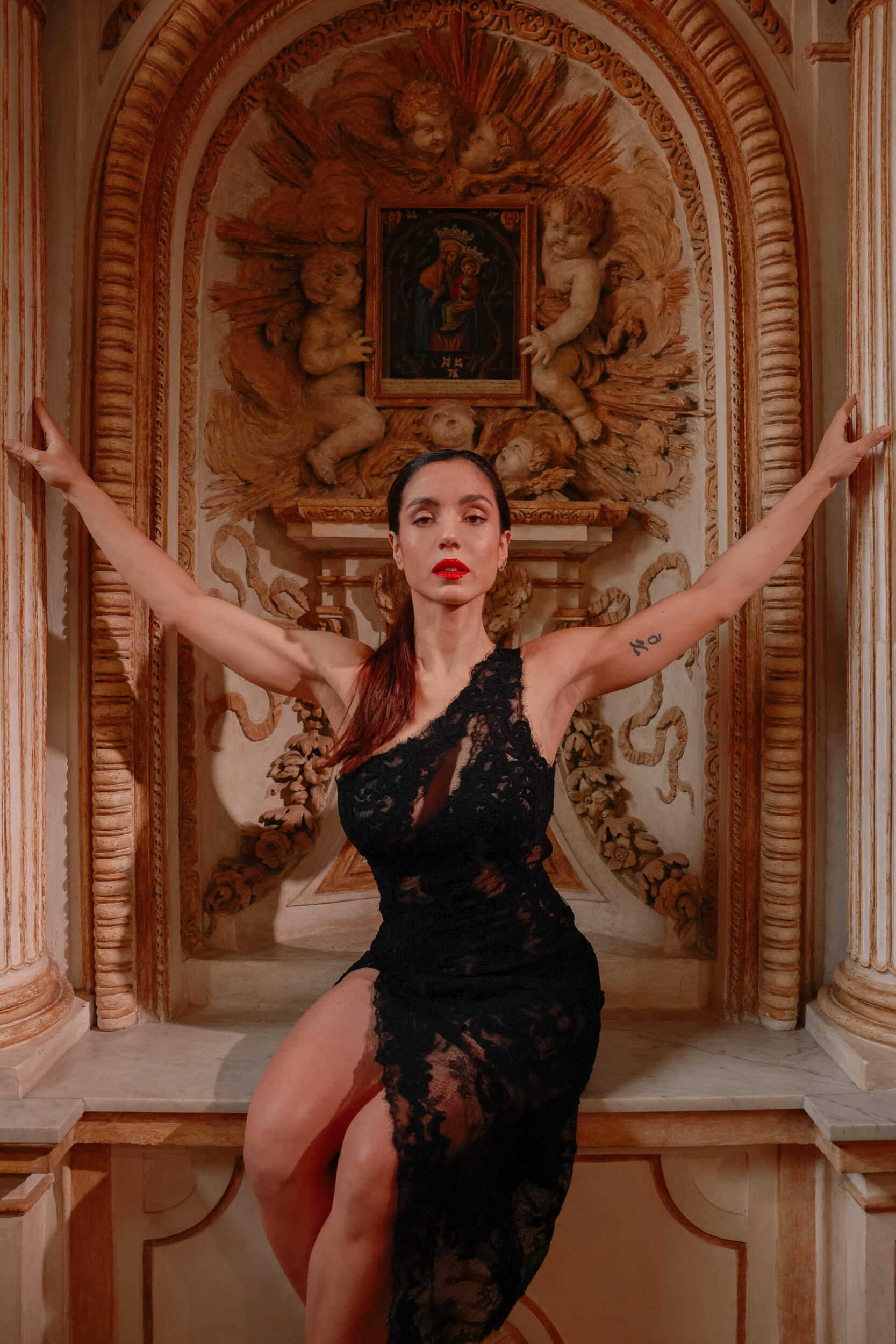
What’s your happy island?
I won’t tell you. It’s private.
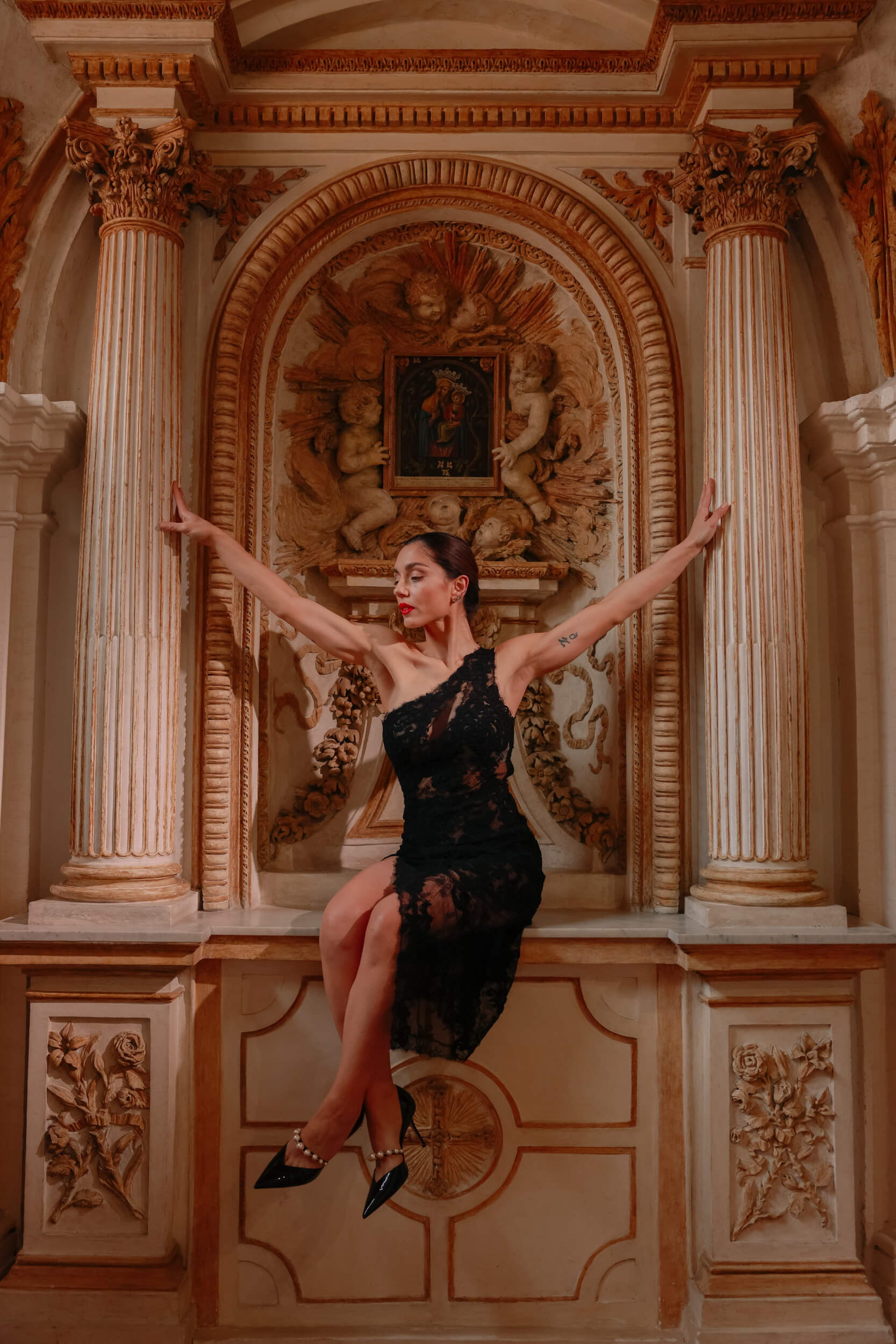
Photos & Video by Johnny Carrano.
Makeup & hair by Francesca Naldini.
Styling by Sara Castelli Gattinara.
Assistant styling Bianca Giampieri.
Thanks to Location Hotel Donna Camilla Savelli.
Thanks to Other srl.

